This website uses cookies to ensure you get the best experience on our website. Change your cookie settings at any time.

British education system
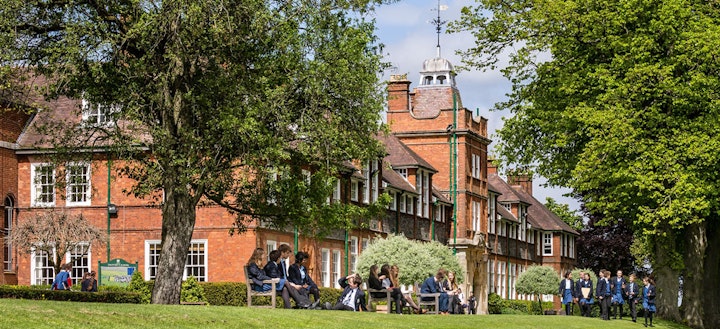
an introduction to the British education system
The education system in the UK is divided into four main parts, primary education, secondary education, further education and higher education.
The education system in the UK is also split into "key stages" which breaks down as follows:
- Key Stage 1: 5 to 7 years old
- Key Stage 2: 7 to 11 years old
- Key Stage 3: 11 to 14 years old
- Key Stage 4: 14 to 16 years old
UK primary education
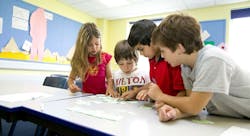
Primary school education begins in the UK at age 5 and continues until age 11, comprising key stages one and two under the UK educational system.
Some primary schools are split up into Infant and Junior levels. These are usually separate schools on the same site. The infant age range (Key Stage 1) is from age 5 to 7. The Junior age range (Key Stage 2) is from age 7 to 11. The year groups at primary School level are:
Year R (Reception) (age 4 – 5) Year 1 (age 5 - 6) Year 2 (age 6 - 7) The year when SATs testing takes place for Key Stage 1 Year 3 (age 7 - 8) Year 4 (age 8 - 9) Year 5 (age 9 - 10) Year 6 (age 10 - 11) The year when SATs testing takes place for Key Stage 2
secondary school - years 7 and 8
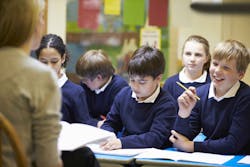
Years 7 and 8 are the first two years of secondary school education in the UK. In some independent schools they are included in the Junior School, in others, they are part of the Senior School.
Under the UK school system, all students study English, Maths, Sciences, a Humanity and a Modern Language. Besides these subjects, each school has a list with optional subjects (Art, Music, Drama, Latin, Sport Science, Design Technology, Computer Science), and students may choose a few subjects that interest them.
In some schools, students sit the Common Entrance Exam in year 7. There are 3 examination sessions, in November, January and May/June. The transition from Junior to Senior School (from year 8 to year 9) may be conditioned upon the Common Entrance Exam results in those schools.
secondary school - year 9

Year 9 is a very important year in the British school system, as most of the students make the transition from Junior School to Senior School. It is also a very good foundation for the GCSE programme and it is an entry point to all schools.
Students study English, Maths, Sciences, Humanity and Languages. In addition, students choose a few subjects from the optional subject list offered by each school.
secondary education - years 10 and 11
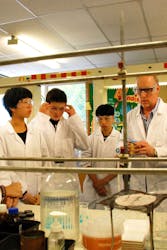
GCSE programme
In the last two years of secondary education, which are called Year 10 and Year 11, starting at age 14, students prepare for GCSE exams that are taken after two years (General Certificate of Secondary Education).
In the UK school system, during the GCSE programme, students study between 9 and 12 subjects. Some of them are compulsory (English, Math, 2/3 Sciences, History/Geography, a Modern Language etc.), some are chosen by each student according to their abilities and preferences. At the end of the 2 year GCSE programme, following the examinations on each studied subject, students receive their GCSE Certificates.
The chosen subjects and the GCSE results are very important for their Further Studies (A-Level or IB) and for their University admission.
Intensive 1 year GCSE
Some schools offer a 1 Year GCSE programme in Year 11 for international students seeking a school education in the UK. These intensive, one year courses, are available for students aged 15 plus, with the appropriate academic level from their own country. Fewer subjects are studied (maximum 6).
The IGCSE programme ( International General Certificate of Secondary Education) prepare international students for A-Level and/or IB.
Students study between 5 and 7 subjects, English, Maths and Science being included. Each school has a list of available subjects for IGCSE students. At the end of Year 11, students take exams in each studied subject and receive IGCSE Certificates.
university preparation - years 12 and 13

A level study
In the UK school system, once a student reaches the age of 16, they can start a 2 year programme which leads to A (Advanced) level examinations. Students specialise in 3 or 4 subjects, that are usually relevant to the degree subject they wish to follow at university. A levels are state examinations and are recognised by all UK universities and by institutions worldwide.
At the end of Year 13, following the examinations in each subject, the students receive A level Certificates.
International Baccalaureate (IB)
Those who would like to study more than 3-4 subjects, may continue their studies in a broader number of subjects with the International Baccaularete Diploma Programme, offered by some independent schools.
During the IB, students study 6 subjects, 3 at higher level (HL) and 3 at standard level (SL). Each school offers different subjects at different study levels (HL/SL). The IB programme also includes a compulsory Core programme consisting of Theory of Knowledge (TOK), Extended Essay (EE) and Creativity, Activity, Service (CAS).
Students take written examinations on each subject at the end of their courses.
further education - vocational courses

International students can either choose a state sixth form college or a college of further education as an alternative to private education. Both offer GCSE and A level courses for students from the age of 16. Colleges of further education also offer foundation and diploma courses. All colleges can prepare students for entry to a UK university or any university in the world. Bright World works with a number of state colleges in the UK which provide a multitude of vocational and academic courses. These courses can enable students to pursue their chosen career or to gain a place at a university of their choice.
The British school system also extends to BTEC courses which are designed for students who would like to develop practical knowledge and skills in a specific subject (Business, Psychology, Engineering, Sport, Art & Design) and find traditional exams challenging. Focussing on practical, skills-based learning, the BTEC students are assessed during the course. After each unit students are assessed through assignments, tasks or tests, and not at the end of the programme as it happens with GCSE or A-Level students.
university - foundation courses

From age 17, international students can opt to study one year foundation programmes, instead of A levels or IB. These courses lead to private examinations that are an alternative to A levels. Foundation courses at colleges are recognised by universities with whom they have partnerships.
Some universities also offer foundation courses that lead onto their own degree programmes.
Bright World has partnerships with a number of colleges and Pathway providers and can help place students into Foundation and Diploma courses in London and across the UK.
university - undergraduate study

In the UK, a British bachelors degree normally takes three years to complete and most are awarded at honours level. Examples of first degrees are: BA (Bachelor of Arts), BEng (Bachelor of Engineering), and BSc (Bachelor of Science).
State colleges offer some 2 year vocational diplomas that grant exemption from the first and sometimes second year of a degree programme. Some private tutorial colleges offer a one year diploma programme which is equivalent to year 1 of university. Students taking 1 year diplomas are awarded second year entry at some universities.
university - postgraduate study

Postgraduate courses in the UK education system are very intensive. This means that the courses are usually much shorter than in other countries. A master's degree typically takes 12 months to complete, for example an MA - Master of Arts and an MEng - Master of Engineering. An MBA (Master of Business Administration) is a high profile Masters course which can take 2 years. Applicants will usually be high achieving with at least 2 years managerial experience. A PhD research degree in the UK can take between 2 and 7 years.
boarding schools
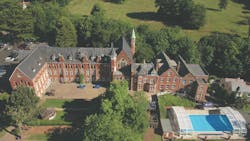
Bright World works almost exclusively with privately funded schools and colleges. A boarding school is a residential school where pupils live and study during the school year. There are approximately 500 boarding schools across England, Wales, Scotland and Northern Ireland.
UK boarding schools offer pupils an outstanding education, helping them to develop their skills and progress to university. All UK boarding schools have to meet strict government standards on the quality of their teaching, facilities and student care.
Many UK boarding schools combine beautiful, centuries-old buildings with a mix of modern classrooms and traditional architecture. The excellent facilities help make living and learning a great experience and pupils will will improve their English skills while they study.
tutorial colleges

Tutorial Colleges start at age 15 and have a more flexible programme range, focussing on fast access to UK university.
Many of the independent private sixth form colleges in Oxford, Cambridge and London work on a 'tutorial system' and are often referred to as 'tutorial colleges'. The tutorial system originates from Oxford and Cambridge Universities and is a very highly regarded and much tested system. It it is still used today and is the cornerstone of an 'Oxbridge' education. A tutorial is a small class of only a few students, in which the tutor (a lecturer or other academic faculty member) gives individual attention to the students.
state boarding schools

A state boarding school is one where you pay for boarding and the education is free. The government pays for the education as it would at any other state school in England.
Admission to state boarding schools in the UK is limited to children who are nationals of the UK and are eligible to hold a full UK passport, or those who are nationals of other European Union countries or those who have the right of residence in the UK. Please note that the holding of a BN(O) passport does not make the child eligible for a state boarding school in the UK.
F E Colleges

An FE college is an institution that provides education for those above school age (age 16). There are many types of FE colleges including, sixth form colleges, specialist colleges and adult education institutes. FE Colleges are state run and as such those members of the EU joining can benefit from free education. There is also a competitive fee structure available for non-EU international students.
pathway courses at university

If you need to improve your English language or study skills before attending a UK university, pathway providers offer unique foundation courses which often lead to direct degree-level entry upon completion. There are several private companies who operate Foundation and Diploma programmes on the campuses of UK universities. Often these courses offer accelerated access to undergraduate degrees.
universities

The UK is one of the world's most popular destination for students from overseas. In fact, more than 400,000 international students enrol each year.International students considering an education in the UK have a choice of over 140 universities and higher education institutions, each offering a great range of tertiary qualifications that will be recognised the world over. Students join a 3 year undergraduate programme or a 1 year postgraduate course.
UK university placement

For expert advice on UK and US university entry, Bright World has teamed up with Education Advisers Ltd, whose experienced consultants offer a full range of Higher Education services for international students. These range from complimentary advice on the best University Foundation courses, to bespoke Oxbridge and Medical School coaching and mentorship programmes. You can visit their websites at www.universityadvice.co.uk or www.best-schools.co.uk or call +44 1622 813870 for further information.
guardianship and school placement advice
Boarding school guardianship.
If your child is attending a boarding school you will need to nominate a UK guardian. Bright World can help you with this service.
university guardianship
If you are under 18 when you start university you will need to nominate a UK-based adult or guardian. Bright World has a programme especially for you.
boarding school placement
If you are looking for a place at a UK boarding school Bright World can help you.
enquire today
Bright world uk schools placement service.
Enquire today and receive our free Guide to British Education
read our online brochures
Bright world guardianship programme.

Bright World boarding school placements

Cookies on GOV.UK
We use some essential cookies to make this website work.
We’d like to set additional cookies to understand how you use GOV.UK, remember your settings and improve government services.
We also use cookies set by other sites to help us deliver content from their services.
You have accepted additional cookies. You can change your cookie settings at any time.
You have rejected additional cookies. You can change your cookie settings at any time.
- Education, training and skills
- School curriculum
- Secondary curriculum, key stage 3 and key stage 4 (GCSEs)
National curriculum in England: secondary curriculum
The national curriculum secondary programmes of study and attainment targets for key stages 3 and 4.
Applies to England
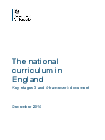
National curriculum: secondary curriculum
Ref: DFE-00183-2013
PDF , 2.18 MB , 105 pages
This is the statutory secondary national curriculum, including programmes of study and attainment targets for all subjects at key stages 3 and 4.
It is issued by law; you must follow it unless there’s a good reason not to.
All local-authority-maintained schools in England must teach these programmes of study, with the exception of key stage 4 English, maths and science.
All local-authority-maintained schools in England must teach key stage 4 programmes of study for English and maths to pupils in year 10 from September 2015, and pupils in year 11 from September 2016.
All local-authority-maintained schools in England must teach the new key stage 4 programme of study for science to pupils in year 10 from September 2016, and to all key stage 4 pupils from September 2017.
The individual programmes of study for key stages 3 and 4 are also available for each subject:
- English (key stages 3 and 4)
- mathematics (key stages 3 and 4)
- science (key stage 3 and 4)
- art and design (key stage 3 only)
- citizenship (key stages 3 and 4)
- computing (key stages 3 and 4)
- design and technology (key stage 3 only)
- geography (key stage 3 only)
- history (key stage 3 only)
- languages (key stage 3 only)
- music (key stage 3 only)
- physical education (key stages 3 and 4)
Further information about the pre-2014 secondary curriculum is available on the National Archives.
Schools are not required by law to teach the example content in [square brackets] or the content indicated as being ‘non-statutory’.
Updated to include details of the programmes of study for science at key stage 4.
Added programmes of study for English and mathematics at key stage 4.
First published.
Related content
Is this page useful.
- Yes this page is useful
- No this page is not useful
Help us improve GOV.UK
Don’t include personal or financial information like your National Insurance number or credit card details.
To help us improve GOV.UK, we’d like to know more about your visit today. We’ll send you a link to a feedback form. It will take only 2 minutes to fill in. Don’t worry we won’t send you spam or share your email address with anyone.
Don't have an Account?
Register Now!

- International Student
- Study Centers
- Study in the UK
UK Education System

The education system in the UK is divided into four main parts, primary education, secondary education, further education and higher education. Children in the UK have to legally attend primary and secondary education which runs from about 5 years old until the student is 16 years old.
The education system in the UK is also split into "key stages" which breaks down as follows:
- Key Stage 1: 5 to 7 years old
- Key Stage 2: 7 to 11 years old
- Key Stage 3: 11 to 14 years old
- Key Stage 4: 14 to 16 years old
Generally key stages 1 and 2 will be undertaken at primary school and at 11 years old a student will move onto secondary school and finish key stages 3 and 4.
Students are assessed at the end of each stage. The most important assessment occurs at age 16 when students pursue their GCSE's or General Certificate of Secondary Education. Once students complete their GCSE's they have the choice to go onto further education and then potential higher education, or finish school and go into the working world.
Our overview of the education system in the UK is divided into five main sections:
Primary Education
Primary education begins in the UK at age 5 and continues until age 11, comprising key stages one and two under the UK educational system. Please visit the British Council page for more information on primary education.
Secondary Education
From age 11 to 16, students will enter secondary school for key stages three and four and to start their move towards taking the GCSE's - learn more about secondary education in the UK and what it will involve. Primary and secondary education is mandatory in the UK; after age 16, education is optional.
Further Education
Once a student finishes secondary education they have the option to extend into further education to take their A-Levels, GNVQ's, BTEC's or other such qualifications. UK students planning to go to college or university must complete further education.
Higher Education
Probably the most important subject area on this site, this explains more about the higher education system in the UK and how it works for international students. Most international students will enter directly into the UK higher education system, after completing their home country’s equivalent to the UK’s “further education.”
Entry Requirements
Each level of education in the UK has varying requirements which must be satisfied in order to gain entry at that level - learn more about the education entry requirements for the UK.
UK Degree Online
With online programs growing in popularity, this means the availability of top-notch online programs is also on the rise. If you want to obtain a UK accredited degree without having to relocate to the United Kingdom, choosing to study online is a good option for you. Getting a UK accredited degree online allows you to fit your studies into your schedule and save money on travel costs while having access to a variety of top programs.
Please note that Scotland has a separate education system and does not conform to the above structure. Please learn more about the Scottish Education System .
Related Content:
Get the international student newsletter.
- Why Study In The UK?
- Plan Your Studies
- Living in the UK
- News and Statistics

- Why Study in UK?
- UK Education System
- Undergraduate Degree In The UK
- United Kingdom Graduate Schools
- Most Popular Degrees In The UK
- Costs of Attending College in UK
- Top Universities in UK
- Best Business Schools in the UK
- Best Medical Schools in UK
- Best Law Schools In UK
- Best MBA in UK
- UK Tuition Fees
- UK Scholarships
- International Student Statistics in UK 2023
Learn English in the UK: A Practical Guide
- Costs of Living in UK
- Student Housing in London
- Working in UK While Studying
- Student Life in the UK
- Best Things To Do In UK
- British Culture and Social Norms
- The Cheapest Places to Live in the UK for Students
- Transport in UK
- How to Apply for College in UK
- UK Student Visa Requirements
- Studying in UK Packing List
UK Education System Guide

The UK education system is reputed worldwide for its high quality and standards. Britons enter the education system at the age of three, and up to 16 are obliged to attend school (compulsory education), while afterward is upon their choice.
Generally, the British higher education system has five stages of education:
- Early Years
- Primary Years
- Secondary Education
- Further Education (FE)
- Higher Education (HE)
Besides sharing many similarities, the UK education system at different levels at each zone of administration (England, Scotland, and Wales) differs a bit. Generally speaking, these differences could be more meaningful if we discuss UK higher education as one.
In the UK, everybody over five and under 16 is obliged to attend school. This aging time frame contains two sections of the education system in the UK: Primary and Secondary Schools.
The Compulsory Education in the UK
Compulsory education in the UK is divided into four key stages, distinguished by a student’s age. The first stage includes 5 to 7-year-olds, and the fourth and final stage lasts from the age of 14 to age 16.
Here are the four stages of mandatory education in the UK and the curricula for each key stage:
First Key Stage
The first key stage in compulsory education in England includes children from 5 to 7 years old, otherwise known as a primary school, comprising the first two years.
Here are some of the main subjects that this stage of mandatory education includes:
- English Language
- Mathematics
- Physical Education
During the first year of this stage, the curriculum structure contains the Phonic screening, a short assessment of kids’ ability to decode and understand phonics properly. Typically, the teacher will ask the students to repeat a list of around 40 words out loud. At the end of this stage (the same in all stages), these pupils will sit for an examination to measure their English, Maths, and Science knowledge development.
Second Key Stage
Between 7 to 11 years, pupils will be in the second key stage of compulsory education. The second key stage includes years 3 to 6. At this level, the curriculum is designed to give students a more advanced understanding of the previously gained knowledge on the core subjects.
At the end of this stage, the school will test students in the following subjects:
- English reading.
- English grammar, punctuation, and spelling.
- Mathematics.
In English and Mathematics, the testing will be done through national assessment tests, while the teacher will independently assess the level of improvement of each student in Science.
Third Key Stage
Pupils aged 11 to 14 belong to the third stage of compulsory education, or years 7 to 9. This education level is essential to a certain degree because only a few years later, they will sit for the GCSE national qualification.
The curriculum during this stage of education will also contain new subjects at which students are supposed to get some basic knowledge before moving any further in the upcoming stages of education.
The subjects learned in Key Stage 3 are:
- Art and Design
- Physical Education
- Modern Foreign Languages
- Design and Technology and Computing
At the end of the third Key Stage, some students may take their GCSE or other national qualifications.
Fourth Key Stage
The final stage of compulsory education, key stage 4, lasts from 14 to 16 and includes years 10 to 12. The fourth key stage is the most common period for students to undertake the national assessment tests that will lead them to take a GCSE or other national qualifications.
The compulsory national curriculum at this stage contains the “core” and “foundation” subjects.
Here are the “core” subjects taught at the fourth key stage:
And here are the “foundation” subjects taught at the key stage 4:
- Citizenship
Additionally, schools in the UK are obliged to offer one of the following subjects during this stage of education.
- Design and Technology
- Modern Foreign Languages
The Higher Education System in the United Kingdom
In particular, UK higher education is valued worldwide for its renowned standards and quality. Its higher education’s prestige also emanates from its graduates’ work afterward. Many eminent people in many different areas whose work reached global recognition came from British universities.
Some universities and other higher education providers are ranked top among universities worldwide. The UK capital city, London, not by accident, is considered to be the world’s capital city of higher education. With its four universities ranked in the world’s top ten, London has the highest number of worldwide-ranked universities per city.
By definition, UK higher education is the level of education that follows secondary school at the hierarchy of the educational system in the UK. When high school is over, Britons have to sit in a standard examination, making them eligible not to continue their education at a higher level.
What is the Difference Between Colleges and Universities?
In the UK education system, in contrast to the US higher education, there is a difference between college and university. While in the US, there is no distinction between college and university, with most people referring to a higher education provider as a college, in the UK, this is not the case.
In the UK, a college is a further education institution that prepares students to earn a degree. At the same time, a university is a licensed HE institution that awards students with a degree at the end of their studies.
Studying in the UK as an International Student
If you’re an international student , you must know that not all higher education providers in the UK are referred to as a university. This issue is regulated by law.
As this official regulation states, a higher education institution can be labeled as a university under these circumstances:
- If it gets approved by the Privy Council under the Further and Higher Education Act 1992.
- If it gets approval under the provisions of the Companies Act 2006.
International students from countries other than the European Economic Area (EEA) or Switzerland must apply for a student visa to study in the UK.

The UK Higher Education Degree Levels and Programs
Based on the actual education regulations in the UK education system, Higher Education comprises the following levels of courses.
1. Undergraduate Courses
Undergraduate courses in the UK include a wide range of first degrees which are listed below.
- Bachelor’s Degree
- Honors and Ordinary Degrees
- Qualified Teacher Status
- Enhanced First Degrees
- Intercalated Degrees (medical schools or other specific study fields allow students to take a year off between the second and third years to study a different area which can be a BA, BSc, or master’s degree program).
Here are other undergraduate courses:
- Foundation degrees
- Higher National Diploma HND (or equivalent)
- NHC (or equivalent), etc.
An undergraduate course usually takes three years; however, Scotland is an exception, where undergraduate courses take four years to complete. The higher education system in the UK has many universities that offer 4-year undergraduate courses, also known as “ sandwich courses .” This program includes a one-year work experience —usually carried out in the third year.
Keep in mind: Some British universities offer fast-track programs where you can obtain a Master’s degree at the undergraduate level. Unlike traditional undergraduate courses, fast-track programs allow students to attend an additional year of studying instead of taking a Bachelor’s degree which leads to a Master’s program.
Besides, it costs much less than the typical 3-year undergraduate courses; however, it usually is much more intense with shortened holiday breaks and a heavy schedule.
2. Postgraduate Courses
The postgraduate degree programs are only obtainable if you have a bachelor’s degree at an accredited university (not necessarily one in England).
The postgraduate level includes the following degrees:
- Master’s Degree (Taught or Research). Master’s degrees usually last one year or longer if they are research-based.
- Doctorate. The typical doctoral degree takes three years to complete.
- Postgraduate Diplomas.
- Postgraduate Certificates of Education (PGCE).
- Professional Degrees.
Note: To enter this level, it is usually required to have a first degree (Bachelor’s).
The Higher Education Curriculum and Admission Process
In the UK’s education system, most syllabi are set by the universities offering them and are not controlled by the government or certain British educational institutions. The only exception to this is teacher education programs, which the government has a lot of say over.
The British government has established the Office for Standards in Education, Children’s Services and Skills (Ofsted) to maintain those standards. Most countries have specific regulations for their teachers, so this isn’t any different than studying teaching in your home country. Because of its strict rules and high standards for teacher education programs, the UK is considered to have some of the best teacher education programs in the world.
Even though universities set the syllabi, the Office for Fair Access (OFFA) in the British school system has a lot of say in the admission procedures of each university. This office was created so everyone who wishes to attend university in the UK can do so. They also promote fair access to higher education, even for those attending university as international students. Appropriate access also includes those of different cultures, different races, different nationalities, and those who have disabilities.
UK Tuition Fees and Costs
The reputation of British higher education goes hand in hand with its costs. Tuition fees may vary from university to university, as well as from one location to another.
So it’s always advisable to check the university’s website before making further study plans. Indeed, to attend a British university, you need a lot of money packed in —whether you’re a native or not— but since there are many scholarship schemes , you can always apply for one.
The tuition fees of UK universities also vary depending on the degree level and study program. The average tuition fees for international students range from ~£17,109 (USD 20,876) to ~£22,200 (USD 27,000).
- Undergraduate tuition fees: International students pay around £11,400 – £38,000 (USD 13,900 – USD 46,355).
- Postgraduate tuition fees: International students pay around £9,000 – £30,000 (USD 10,980 – USD 36,570)
International students are a substantial part of the student population in British universities. The UK is the second most popular study destination for international students, following the US at the top. If you decide to be one of more than a million international students in the US, you’re one step away from a guaranteed brighter future.
Academics and employers value the UK education system and its higher education degrees worldwide. The UK has a rich history of quality higher education, and each university has excellent options for any student.
Subscribe Today
Join 22,141 other students interested in studying in the UK and get regular emails, articles, and scholarships sent to your inbox.
2 Million +
Students helped annually
Guides about studying in the UK
Must-Read Guides
Top music universities in the uk, uk student loans guide 2024, best architecture universities in uk, chevening scholarship application guide, more article, the transport in uk guide 2024.

Studying-in-UK.org is one of the largest information portals about studying in The United Kingdom for international students.
We publish information about the United Kingdom higher education and latest news that concern international students in the UK, as well as a large number of helpful informational content and exclusive research about international students in the UK.
To learn more about us click here.
Quick links
UK Education System List of Colleges in UK Top UK Universities UK Student Visa Requirements Costs of Attending College In UK How To Apply For College in UK Most Popular Degrees in UK Why Study in The UK UK Grad Schools Cheapest Universities in UK UK University Map UK University Entry Requirements UK Facts
© 2013 - 2023 - Studying in UK - All Rights Reserved.
- Privacy Policy
- Editorial Policy
Get special offers that you won't ever find on our blog·
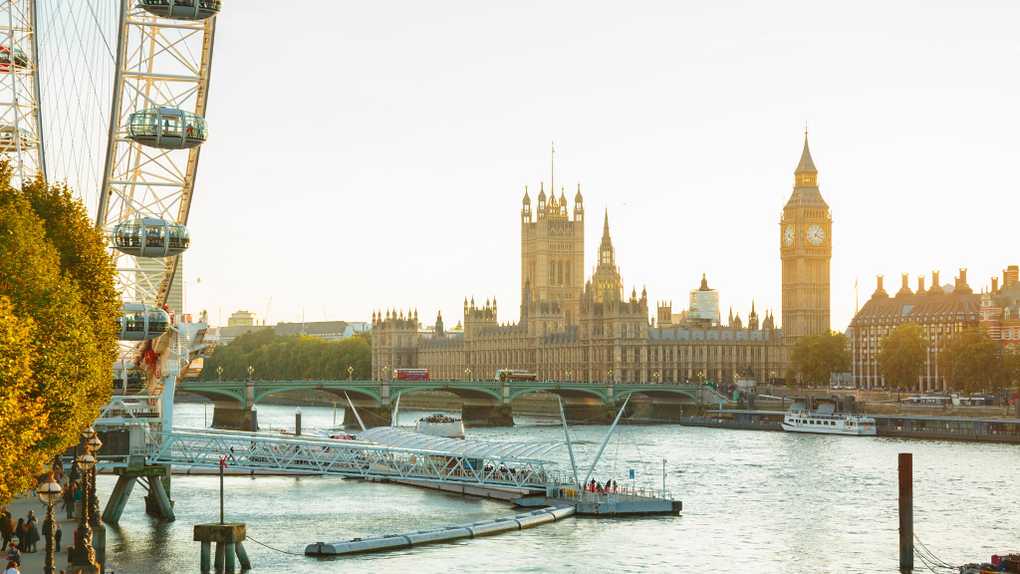
Join InterNations
The world's largest expat community
A Guide to Education & International Schools in the UK
Connect with fellow expats in the UK
Join exciting events and groups for expats
Get information in our expat guides
Exchange tips about expat life in the UK

I wish I'd found InterNations sooner: It would have made my first few month as an expat in London much less overwhelming.
If you are moving your family abroad, you will want to know about the best schools and higher education. As your children’s needs and wellbeing come first, undoubtedly, one of your main worries will be to find out all the details about the education system in the UK. For instance, what is the quality of private schools versus state schools? What options will you have in terms of internationals schools? How much do they cost? What about universities? Which are the best ones and what are the fees like? Read on to find the answer to these questions and all the information you need about the UK education system.

Connect with like-minded expatriates
Ask other international parents about schools in UK
The Education System in the UK
Schooling in the UK is mandatory between the ages of five and 18. Before that, parents have the option of placing their children in early childhood development at institutions or through in-home assistance. Once students enter the education system, parents have a variety of types of schools (private or state-funded, religious or not, international, more or less rigorous, special needs, etc.). Once students graduate from the elementary and secondary school systems, they are ready to continue with higher education. For those that want to follow this path, the UK offers some of the best schools in the world.
What are the School Systems like in Terms of Grading?
The grading system in the UK for secondary education is the alphabetical grading system (i.e. A to U), similar to the one followed by the US. In this context, A means excellent/outstanding; B is above average; C means average; D and E is below average; and F and anything below that refers to fail.
For higher education, a numerical system is followed, and is applied to both undergraduate and postgraduate courses.
- 1st class (a first class honours) – 70% or higher, is considered a Distinction
- 2:1 (a second class honours upper division) – 60%-69% is a Merit
- 2:2 (a second class honours lower division) – 50%-59% is a Pass
- 3rd – 40%-49%
- Below 40% represents a Fail
School Year in the UK
You will probably want to coordinate holidays and visits that coincide with the holidays of your loved ones back at your home country, so you are probably wondering what is the school year like in the UK? It runs from September to July and it is 39 weeks long.
For most areas in the country, the year is divided into six terms (there are some exceptions of schools that follow three terms per year):
- September to October
- October to December
- January to February
- February to March
- April to May
- June to July
The local authority, the governing body of a school, or the school itself (in the case of independent schools) decide on the specific dates for the school terms and holidays.
Main UK School Holidays
- Christmas – two weeks
- Spring – two weeks
- Summer – six weeks
There are also one-week holidays:
- End of October
- Mid-February
School Hours in the UK
In the UK, schools must open for at least 380 sessions (190 days) during a school year. The school hours are determined by each school but on average is about 5-6 hours per day. Normally, school starts at around 8:00- 9:00, and fishes at 15:00-16:00, but every school has different schedules.
Main Differences Between Public and Private Schools in the UK
If you have not yet made your mind up about what route to take, you are probably asking wondering exactly what are the differences between public and private schools in the UK.
A private school refers to any school that is not funded by the state, instead, it is mostly financed via school fees paid by parents.
They cater for any age group and fees differ greatly. In the UK, all independent schools are considered private schools, and these terms are often used interchangeably. However, independent schools are technically all overseen by a board of governors or trustees, whereas other private schools may be run by their owner with no governing body.
A very interesting yet confusing fact about the UK school system is that the oldest, most traditional and expensive boarding secondary schools are also called “public schools”. For instance, Eton, the preferred school for the Royals, is an independent boys’ boarding school, which following the public-school tradition, operates a full boarding facility.
So, when trying to figure out the differences between state education and private education in the UK, it is best to not refer to the former as “public” as it may create confusion.
Types of UK State Schools
The state schools in the UK can be divided into the following categories:
- Community schools: they are not influenced by business or religious groups and follow the national curriculum.
- Foundation schools and voluntary schools: funded by the local authority but have a degree of freedom to change the way they operate (they are sometimes supported by representatives from religious groups).
- Academies and free schools: run by not-for-profit academy trusts and are independent from the local authority (they have more freedom to decide on how to operate and are allowed to follow a different curriculum).
- Grammar schools: they can be run by the local authority, a foundation body or an academy trust, and select their pupils based on academic ability. Students have to take a test in order to get in.
Are Private Schools Better than State Schools in the UK?
Alternatively, private schools (also known in the UK as ‘independent schools’), charge a fee rather than being funded by the government. Nonetheless, they must be registered with the government and submit to regular inspections. In these schools, students do not have to follow the national curriculum.
The magic question is, are they better than state schools? There is a lot of debate around this topic, but to give you an idea, people who argue in favor of private schools claim that they tend to have better facilities, better exam results, ample range of extra-curricular activities, and even more highly-committed teachers. Nevertheless, this is all debatable as money can’t always guarantee quality. For instance, life skills that are acquired by interacting on daily basis with people of very diverse backgrounds is something that money can’t buy. Moreover, many times the quality of teaching is down to the teacher and not the school, and in the UK, there are excellent teachers in both systems.
Daycare and Kindergarten
Children usually start playschool (preschool or kindergarten) at around three years old and they start school (with a first foundation year, also known as “senior kindergarten”) the year they become five.
Moreover, there are other options for early years or preschool education, such as daycare, “nursery schools” (similar to kindergartens), childminders and au-pairs. However, preschool isn’t mandatory.
To find available childcare facilities where you are, plus information on childcare and kindergarten fees, and educational approaches, get in touch with the Family Information Service of your Local Council. You can access a search function for all FIS contact information in Great Britain and Northern Ireland via the Daycare Trust .
Free Education and Childcare Funding
The Family Information Service in your area will tell you if there are any funded places for early years education available. For example, three-year-old and four-year-old children in England have a legal right to 15 hours of free education per week, 38 weeks per year. In Northern Ireland, they usually get one year of government-funded pre-school education.
Childcare Vouchers
It is possible to get financial benefits beyond funded early years education. Your employer may offer childcare vouchers as part of your job benefits. If so, you should calculate carefully if these vouchers are worth more or less than Working Tax Credits.
Tax Credits
You can only claim Working Tax Credits if you don’t get any company vouchers for childcare. Then you may get up to 2,010 GBP a year (for one child) from the UK government. To be entitled to this money, both you and your partner need to work for at least 16 hours a week. To see if you have a right to additional child benefits, check the online benefits adviser .
State Schools
State schools in the UK are funded and supervised by their respective local authorities, but most of them have to follow the national curriculum.
UK state schools mostly differ in the way their administration and management are organized. Faith schools in the UK, for example, are affiliated with religious institutions. But they can also receive money from their local council.
The school year normally runs from around 1 September to 31 July.
Primary Education
According to the National Curriculum in England, a child will attend primary school from age five to 11. For children at most schools, a normal school day begins between 8:00 and 9:00 and ends between 15:00 and 16:00.
At primary schools in the UK, children focus on the core subjects of math, science, and literacy. They should also learn about history, geography, technology, art, and music, and they can participate in PE (physical education) and religious education.
In Year 6, at the end of Key Stage 2, all students at primary schools in the UK, have the option to participate in a standardized exam.
Talk to other international parents with young children in UK
Primary and Secondary Schools
There are lots of factors to think about when choosing the best primary (elementary) and secondary schools for your children, such as school costs. In this article, we explain different types of schools, such as grammar and comprehensives, boarding schools, language schools, international schools, the qualifications children can get, and higher education.
Secondary Education
Secondary education (including what they call high school in the UK, sixth form, and “college”) lasts for five to seven years. Students between 12 and 16 years old are legally required to attend a secondary school in the UK. This stage of compulsory education is called “lower secondary”.
Upon completing lower secondary, students may choose to start work or vocational training. Or they can go on to college or sixth form, where 16 to 18-year-olds prepare for university.
Comprehensive, Grammar and Specialist Schools
The curriculum for any secondary school includes all subjects taught in primary education. Students also have to learn at least one foreign language, take citizenship classes, and attend personal, social and health education.
Moreover, lots of state schools are “specialist schools”. They focus on one or two areas of the curriculum. So, if your children are gifted in math and science, or if they have a special talent for music, it makes sense to choose their secondary school accordingly.
Until 2010, specialist schools received an official designation from the UK government, as well as extra funding to go with their new status. Though this program was phased out several years ago, plenty of secondary schools still focus on selected areas and continue to build upon their previous reputation.
Specialist schools are not to be confused with “special schools”. The latter provide special needs education for children with learning difficulties and other disabilities. If you think that your child requires special needs education, please contact the Independent Parent Special Education Advice Center to make the necessary arrangements.
Basic Qualifications: GCSEs and Diplomas
After three years in secondary school, children are officially assessed by their teachers. Students then need to choose their subjects for the nationwide GCSE exams. GCSEs are mandatory examinations at the end of Year 11, i.e. the students’ fifth year in secondary school.
Students usually have to take tests in English, math, and science and they have to choose classes from the fields of arts, humanities, modern languages, technology, and vocational studies as well.
The new National Diploma focuses on practical training, work experience, and a vocational approach rather than academic studies. It can be taken in around 20 different subjects, such as engineering, IT, or creative and media.
A-level Exams
Most British students usually opt for A-levels rather than a diploma. A-level exams are the main admission requirement for an undergraduate degree at universities in the UK.
Students prepare for their A-levels during Years 12 and 13 in school, the upper secondary stage. For historical reasons and when 16-year-olds have the option to stay at their secondary school for their A-levels, these two years of education are called “sixth form”, or “lower sixth” and “upper sixth”, in many places.
In Year 12, most students study four subjects of their choice. One of them is completed at the end of that year as an AS level and dropped afterward. The other three subjects lead up to three full A-levels after Year 13. However, some students may choose to complete four A-levels, despite the extra workload.
Assessment for grading a student’s A-levels is based on coursework, written exams, and – in some cases, e.g. art – their practical skills. The selection and number of A-level courses may already influence a student’s success in applying for university. But no matter how impressed the admission office is with a candidate’s academic skills, he or she will only get a “conditional offer” for a place in a degree course, before they receive their final exam results.
International Schools
London is home to the some of the best international schools in the UK, but there are plenty of other alternatives. In this section, we give insight on international schools, and discuss who would benefit from attending one, and share some of the best French, British, and American international schools in the UK.
Bear in mind, that international schools provide similar standards of schooling around the world, making for an easy transition between schools. This a good option for foreigners moving to the UK. London A good database can be found at the international school search .
Advantages of International Schools For Expat Children
The main advantage of international schools is that they offer the International Baccalaureate, which is recognized in many schools worldwide. These standardized programs comply with state education guidelines for each country but have a global focus.
A second advantage is that the high number of international students at these schools means that staff understand the needs of foreign students. In the UK, most international schools are concentrated in and around London. The average cost for tuition at an international school in the UK is around 20,000 GBP (23,500 USD) a year.
The International Baccalaureate Diploma Program lasts two years and is aimed at students ages 16-19, in their final years of secondary school. The program’s qualification system is accepted in many universities around the world.
For expat children, independent schools in the UK can be a great alternative to state schools. If a family relocates during the academic year, they may not be able to meet the deadline for applying to the local school of their choice. Moreover, even if they do obtain a place at a state school in their catchment area, the teaching staff may not always know how best to deal with children suffering from culture shock and the language barrier.
International schools, which frequently address the specific needs of expat children, also belong to the category of independent schools in the UK. They are not required to follow the National Curriculum set by the Department of Education and offer different diplomas as well, especially the IGCSE and the International Baccalaureate. In addition to truly international schools, with their international curriculum and certificates, there are several third-country schools in the UK too. They normally cater to students of particular nationalities, who may return to their home country soon.
Schools in the UK for International Students & Tuition Fees
Below, you can find a list of different international schools suiting children from different countries. The average cost for tuition at an international school in the UK is around 20,000 GBP (23,500 USD) a year. But, to give you an idea of range of international school tuition and their corresponding fees, here are some examples:
- SABIS in Bath charges between 15,000 and 26,700 GBP per year
- Cambridge International School charges 3,300 to 3,920 GBP per month
- International School of London costs between 16,750 and 22,500 GBP per year
- Dwight School of London is between 2,750 and 5,670 GBP per year
International Schools for Different Nationalities
If you are interested in a country-specific school, the UK has plenty on offer. You will be able to find German, French, Spanish, and Japanese International Schools, etc.
- The American School in London
- Hockerill Anglo-European College
- TASIS: The American School in England
- Lycée Français Charles de Gaulle
- Deutsche Schule London
- Instituto Español “Vicente Cañada Blanch”
- De Zeven Eiken
- De Regenboog School
- The Japanese School in London
- Svenska Skolan London
- Den Norske Skolen i London
Higher Education
There are many places to study in the country, so read on to find out some of the best universities for international students in the UK, and more about the different degrees you can opt for. And if you’re looking to go to law or medical school, we have good news – you won’t need a bachelor’s degree before applying in the UK.
How Much Does it Cost to Study in the UK for International Students?
Higher education in the UK is expensive, but prices are relatively standard across the country. Undergraduate students who qualify for ‘Home fee status’, i.e. UK and EU citizens, will not pay tuition fees higher than the amount capped by the government. For 2020 and 2021, this maximum is 9,250 GBP (11, 500 USD)
Fees for students from countries outside the EU, including those from the Channel Islands and the Isle of Man, vary depending on the course.
Times Higher Education reported that on average, international university students pay 12,000 GBP per year for their undergraduate degree. However, at Cambridge, it costs around 53,000 GBP (65,000 USD) a year to study Medicine or Veterinary Medicine.
Overseas students might also have to pay College fees if they are going to universities, such as Oxford or Cambridge. College fees can amount to between 6,500 and 13,000 GBP. (8,000 and 16,000 USD)
Postgraduates:
For example, at Cambridge, for a full-time course, it costs from around 20,000 GBP (25,000 USD) up to around 80,000 GBP (98,500 USD).
Times Higher Education’s survey in 2019 reported the following average course fees for masters degrees:
Type of degree Cost (GBP) – USD Classroom 14,620. 18,000 Laboratory 16,967. 21,000 Clinical 22,732 28,000 MBA 19,924 24,500
Rights for EU Students Post-Brexit
Students’ right to live in the UK will remain the same 31 December 2020.
All citizens of the European Union, Iceland, Liechtenstein, Norway and Switzerland who are living in the UK before 31 December 2020 should apply to the European Union Settlement Scheme (EUSS).
The EU Settlement Scheme means citizens from the aforementioned locations will be able to stay and continue to access benefits and services broadly on the same terms prior to Brexit.
Should expats decide to stay in the UK your deadline to apply to the European Unio Settlement Scheme is 30 June 2021. Check how to Continue living in the UK .
Course Fees and Funding to study in the UK for EU Students Post-Brexit
Foreign students will have access student finance if their course starts in the 2020 to 2021 academic year or before. This will be available for the duration of your course, if you meet the residency requirements.
If you’re studying in Scotland, Wales or Northern Ireland. Please confirm if you are eligible for financial support with the corresponding student funding body.
Undergraduate Degrees in the UK
Expats who do not have any knowledge of their chosen field of study, or with a related degree not recognized by higher education in the UK, should go for an undergraduate course. These programs are usually taught as a combination of lectures, seminars, and small tutorial classes in several modules with varying topical cores. They mostly take three years to complete and lead up to a bachelor’s degree (Bachelor of Arts, Bachelor of Science, Bachelor of Education, or Bachelor of Engineering).
In this context, Scottish universities are an exception to higher education in the UK. Unlike all other universities in England, Northern Ireland, and Wales, they award bachelor’s degrees with full honors only after four years.
Graduate Degrees in the UK
If you already have an undergraduate degree, either from a university in the UK, or an accredited institution abroad, you can continue your studies in the same or a closely-related field with a postgraduate master’s degree. These programs may take one year of additional study or two years of research.
Mature students (i.e. students over the age of 23) might also be interested in vocational degrees, such as the Certificate of Higher Education, the Diploma of Higher Education, or the Higher National Diploma. Furthermore, part-time courses (obtaining a bachelor’s degree takes five years or more), as well as long-distance degrees from the Open University, are also an option. They are a good alternative to traditional higher education in the UK and may be of particular interest to those currently working or raising a family.
A master’s degree is the requirement for entry into a PhD course. In contrast to the US, higher education in the UK doesn’t require an undergraduate degree if you want to go to med school or become a lawyer. All students of law and medicine can enter such courses immediately after completing their secondary education.
The Best Universities for International Students in the UK
In the Times Higher Education World University Rankings 2020, these were the top five UK universties:
- Imperial College, London
- London School of Economics and Political Science
- King’s College London
For information on Scholarships for Overseas Students visit the UK Government Site.
Ask other international parents already living in UK
Join one of our many local parent groups and get advice on which schools to choose.
Language Schools
f you are thinking of relocating to the UK to attend a language school, you will have over 400 schools and centers to choose from. The key is to know what type of school you are looking for, whether it is test preparation (IELTS, Cambridge or TOEFL) or more informal classes (summer camps for children and teens, teacher training, etc).
One of the most important things to consider when you choose your language school is its accreditation in order to guarantee quality classes. The process to become accredited is rigorous and takes into consideration different variables, among them:
- Course Design
- Premises and Facilities
- Staff Management
- Learning Resources
- Staff Profile
Foreign Language Classes and EFL
If you would like to learn a new language while living in the UK, there are plenty of resources for adult education. Community centers run by your Local Council often offer affordable evening classes among their leisure activities.
If you feel more confident about studying on your own, the online courses of Learn Direct or the Open University could be a better fit. You can even enroll as a mature student at regular universities in the UK.
You have similar opportunities to improve your English language proficiency. The Learn Direct program and the BBC Skillswise course are mostly geared towards people who’d like to improve their knowledge of standard written English. For academic purposes, high-powered careers and executive jobs for foreigners in the UK, such literacy offers are not sufficient.
However, the Cambridge English Language Assessment Tests can help you acquire widely recognized certificates for business English, legal English, and financial English. They also have examinations for non-native speakers who need to prove their English skills to get access to higher education in the UK. Unfortunately, you are expected to prepare for these tests in self-directed study.
If you’d like to have a classroom setting or teacher to support you, English in Britain is a comprehensive database. It lists plenty of schools and courses for EFL (English as a Foreign Language) across the UK.
Lastly, the British Council has shared a list of 500 accredited English language schools where you can learn English.
What are the Fees for Language Schools?
Language school fees will vary from school to school but you can expect them to start at around 550 GBP (700 USD) for standard full-time classes (15-hour week in a 10-week program) while part-time courses (four hours a week in a 12-week program) will run around 270 GBP (350 USD). Intensive courses (30 hours per week) will start at around 1,200 GBP (1,500 USD). Of course, you’ll also have to consider materials, room and board, commuting, and general spending costs.
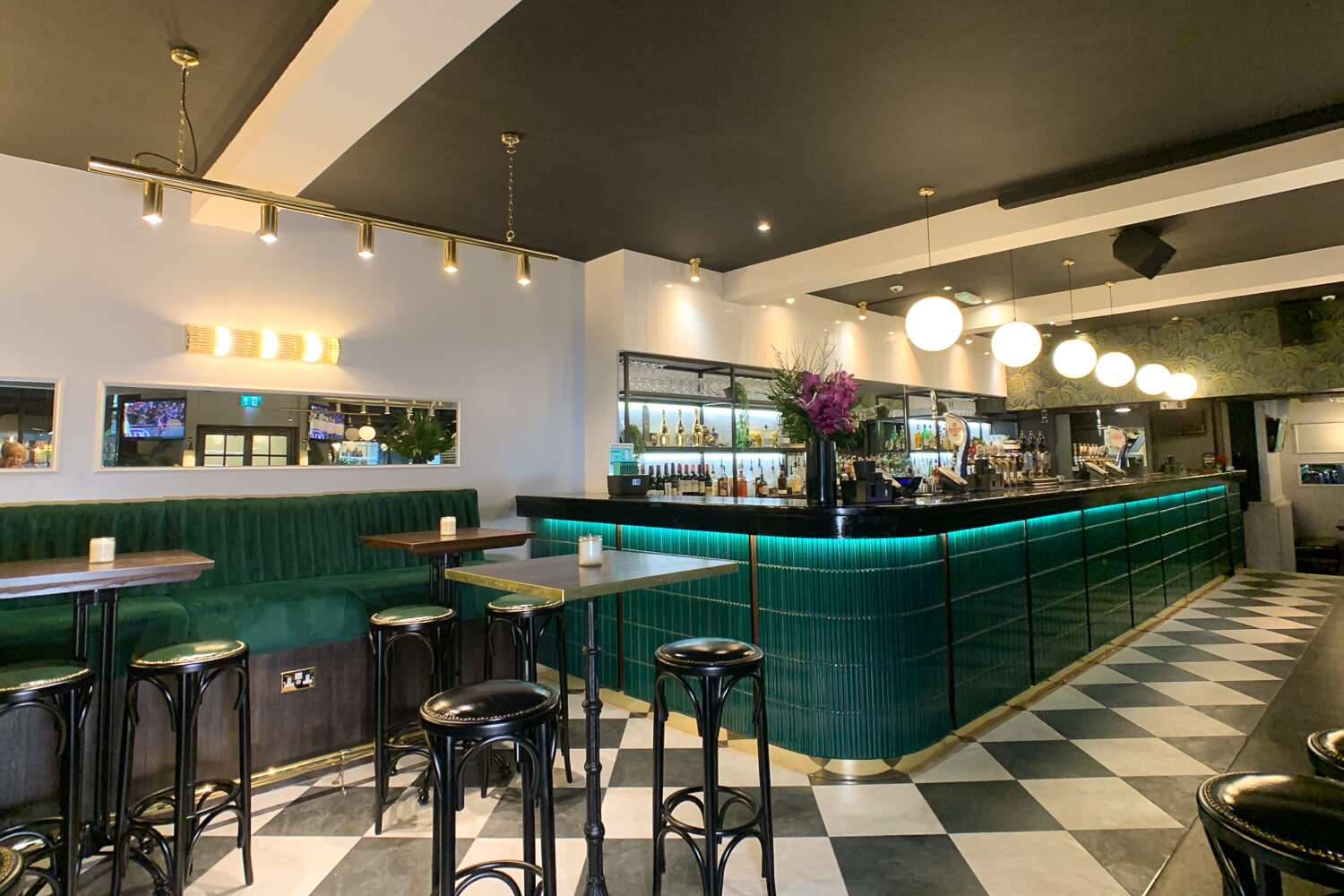
See all upcoming events for expats in UK
Our global partners.

For me, the InterNations events are the best part. I attend almost every get-together and always get to know lots of friendly fellow expats.
Communities in the United Kingdom
Like-minded expatriates in the united kingdom, italians in the uk, french in the uk, americans in the uk, spaniards in the uk, indians in the uk, germans in the uk, romanians in the uk, south africans in the uk, portuguese in the uk, poles in the uk, united kingdom guide topics.
- United Kingdom
Secondary education and schools in the UK
How to send your child to an English school? Tuition fees and the learning process in UK schools
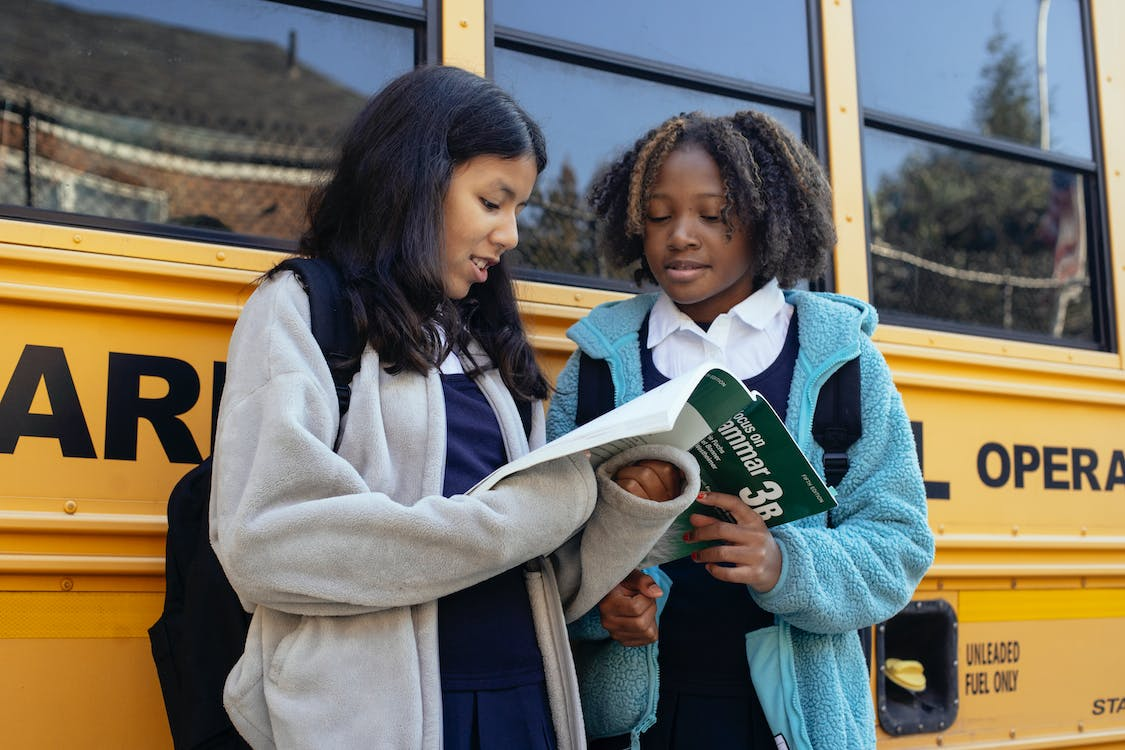
- Secondary education in England is one of the main pillars of the British economy: a strong school system prepares millions of teenagers for university education every year.
- Residents of any country can send their child to an English school as early as the elementary school stage (from 4 years old).
- Foreigners can only study in private schools.
- The main accommodation options are in a boarding school or with a guardian.
- Until the child turns 12, a parent can stay in the country on a special Parent of a Child Student accompanying visa.
- A key requirement for applicants is proficiency in academic English. Schools conduct additional entrance tests in basic subjects in English.
- Foreign students enter secondary school from 11-13 years old. The last two years of studies are devoted to the standard school program — GCSE.
- For further admission to a British university, you must complete the British A-Level high school program or the International Baccalaureate program.
- The school itself decides which year of study in Britain corresponds to the level of knowledge of the foreign student. Transferring immediately to the second year of GCSE or A-Level programs is highly discouraged.
- In British educational institutions, there are also special Foundation preparatory programs, whose students receive conditional admission to partner universities in the UK .
- Full board. Most international schools in England offer not only quality education and a friendly atmosphere, but also comfortable living conditions under the roof of the school itself — such educational institutions are called boarding schools . They provide everything for comfortable living and studying: from a separate room and three meals a day to reading clubs and a personal mentor. A similar practice has existed since the 18th century: at that time wealthy citizens would send their sons to boarding schools in order not only to educate but also to make them into real gentlemen. In this context, “sending a child to school” means the beginning of an important stage in their life, which will save parents from routine household worries and give the child the first experience of independent life, albeit under constant supervision from the school staff.
- Image . British pragmatism strives for economical and social effectiveness while retaining the ancient traditions. School curricula combine classics and innovations: students simultaneously learn Latin and programming languages, read Shakespeare and Foucault, study colonial history and analyze modern international relations. Graduates of English schools are brilliantly literate and business savvy, which provides them with excellent prospects for many years to come.
- Discipline . English schools, especially boarding schools, take discipline very seriously. The student’s day is scheduled almost by minutes — from the exact time of breakfast to the schedule of evening activities. To some, this method may seem too strict, but it allows to give as much knowledge as possible to the child while ensuring the greatest possible safety.
- Funding . It is very important for the UK government to maintain an excellent image of the educational system, so the schools are constantly being modernized. The government spends more than 78 billion GBP/year on the development of primary and secondary education [1] , and private sector investments amount to about 11 billion GBP/year. Together they provide significant resources to guarantee that English education maintains the highest technical and quality levels.
- Multinationals . England, especially London, has a rather open cultural policy and accepts many talented foreigners. In British society, one rarely encounters discrimination or arrogance towards people from abroad, since the main criterion here is personal success. Therefore, a foreigner who gets into an English school will find a comfortable atmosphere of diversity.
- Discounts and scholarships. Despite the huge prices, many British schools offer students, including foreigners, special conditions. For example, 10-15% discounts for the second child. There are also grants for talented students. They can be obtained both on the basis of academic success and for special achievements in the fields of music, sports, and theatrics. However, this is quite difficult — in addition to the portfolio, candidates need to pass additional exams or creative tests.
- International ranking. The positive image of English schools is confirmed, among other things, by the actual academic success of students. According to the international assessment program PISA , in Reading, Mathematics, and Natural Sciences, English schoolchildren are ranked 17th, 14th, and 14th, respectively [2] .
- Conservatism . The image of a rational and traditional Englishman is not a tourist myth: England is a rather conservative country where pragmatism and order in everything are appreciated. To this day, in many English schools, boys study separately from girls, and each day of the students is strictly scheduled from early morning until evening. They also wear a special uniform with the coat of arms of the institution.
- Elitism . Private schools in England are often the subject of criticism: a significant portion of English families cannot afford to send their children to a private school, which makes the division into rich and poor more and more obvious. The former are almost always guaranteed a good future, and the opportunities for the latter are noticeably reduced. For example, in 2006, more than half of freshmen at Oxford University graduated from private English schools, while graduates from public institutions, which are the majority in the country, made up less than 30% of the university students.
- Selectivity. The special prestige of secondary education makes most schools selective. This means that even if parents have a sufficient amount of money, top-ranking schools take only students with excellent academic performance and, preferably, an assortment of other talents. Learning in such an impeccable environment imposes a huge responsibility on the child and can cause much stress.
- Nuances of admission. The procedure for admission to British educational institutions is rather chaotic. Each school itself determines the criteria and timing of selection: top schools accept applications 2-4 years before the start of the classes. In addition, foreign students are not always enrolled in the year appropriate for their age. The school may deem the child's knowledge insufficient and assign them to a younger group. The two-year GCSE and A-Levels programs are, in principle, considered indivisible, so it is impossible to transfer immediately to the second year.
System of secondary education in the UK
Education in the UK is compulsory for all citizens from 5 to 16 years old. Education in state schools takes place in key stages . They assume a single national curriculum and uniform standards for all students.
Early Years Foundation Stage
An optional educational stage with gamified learning, a kind of kindergarten for British children. The last year (aka reception year ) prepares for starting school.
Key Stages 1-2
The primary school program includes 10-12 basic subjects: core subjects and Foundation subjects . The student takes Standard Attainment Tests (SATs) at the end of each year in English, mathematics, and science.
Key Stages 3-4
With the transition to high school, the array of disciplines expands, additional subjects are introduced . In the end, students take GCSE exams and receive a General Certificate of Secondary Education.
Key Stage 5
An optional step outside the national curriculum. It is necessary only for those who are going to enter a university. Final exams depend on the program: IB, A-level, Pre-U, or AP.
These stages are valid in England, Wales, and Northern Ireland. The Scottish system has a number of differences [3] .
Private schools have similar levels, but they usually have different names and clearly define the minimum age requirements for admission:
Private schools do not follow the national curriculum. They offer students more disciplines, including non-standard ones, aimed at practice and personal development.
Tuition fees in UK schools
The table shows the approximate cost per year of study. The exact prices must be checked on the schools' websites.

Types of schools in the UK
Schools in England are divided not only by the type of ownership (state or private) but also by the organization or church affiliation, funding scheme, specialization, access for foreigners.
Private, or independent, schools are open to students from other countries and offer special adaptation programs for them, while state schools are available only to British citizens and foreigners with permanent resident status.
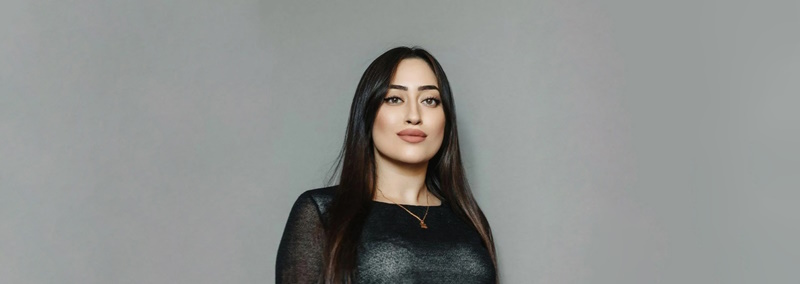
Independent schools in the UK
Education in an independent school is paid, but it is an investment in the child's future. It is the first step towards entering a top university, which determines the future competitiveness of a graduate in the labor market.
Unlike state schools, private schools can experiment with the curriculum. But this does not mean that they are left to fend for themselves. The quality of the programs is controlled by special organizations: Ofsted and Independent Schools Inspectorate .
Typically, private schools strive to make learning more applied. Each year, more projects, practical courses, and creative activities are added to the schedule. Many schools also devote time to the psychological condition and health of the students. For example, King's College School has included empathy classes in the curriculum. There, students are taught how to deal with anxiety, rest properly, and develop awareness to reduce the negative impact of their surroundings.
Independent schools can be categorized:
- By age of students: preparatory, secondary, Sixth Form. If the school is only Prep or only Sixth Form, this is usually reflected in its name. If not, then most likely the school combines all levels or at least 2 of them (for example, from 11/13 to 18 years old).
- By sex : mixed (co-ed) and single-sex schools .
- D ay schools — the student comes to school every day and returns home in the evening.
- B oarding schools — the student lives in the residence under the supervision of the school staff and goes home only for the holidays.
- Specialty : faith schools, specialist schools. There are not many of the latter, but you can find those that specialize in music, theatrics, dancing, or sports.
You can also often see the term "public schools." By drawing an analogy with American public colleges and European universities, one might think that these are free public institutions. However, in England, the opposite is true: a public school is an independent educational institution created on a public (that is, non-state) initiative. They first began to appear about 300 years ago and after two centuries have become the most prestigious and most selective schools. As a rule, they have the highest requirements for future students.
Boarding schools are a type of public school, especially relevant for foreign families. The boarding school is an educational institution that, together with the educational services, offers accommodation in a school residence, three meals a day, and supervision of the students. Historically, it is this form of school that has gained the greatest popularity in developed countries: living on the territory of the school teaches discipline, allows you to immerse yourself in the educational process, and establish strong friendships with teachers and peers. To enter the best boarding schools, you will have to pass entrance exams. The cost of studying at a boarding school is usually higher than at a day school.
Tuition fees in mixed boarding schools in the UK
Requirements for studies in mixed boarding schools.
From the 18th century until today, the practice of single-sex schools has been quite common in the UK. These are usually boarding schools, but such day schools also exist. It is believed that all-male groups are more competitive, and boys in general are more active, therefore, in schools for boys much attention is paid to sports education. In female groups, on the contrary, the spirit of mutual support and overall greater tranquility is usually noted, so in girls schools there is much more focus on book clubs and group projects.
Despite the fairly progressive views of the British regarding emancipation and feminism, the supporters of these practices are still numerous in the UK. As a rule, the connoteurs of separate education uphold the idea that schoolchildren will not be distracted from their studies by romantic intrigues. It is supposed that such an order teaches students to take on all the functions needed to live an independent life without dividing the tasks into "male" and “female” ones. However, the question remains of how the child’s view of the world and the opposite sex can be formed without any real interaction in the early period of life. The final choice is up to the parents and the child.
Tuition fees in UK single-sex boarding schools
Admission requirements in uk single-sex boarding schools.
Specialist schools are for those who have already decided to connect their lives with such areas as academic music, dancing, arts, and sports. Usually these are boarding schools. The selection for such a school is not based on past academic performance, but on the child’s talents. Proofs of the latter could be a portfolio of drawings, recordings of speeches and all kinds of awards at local and international competitions. The best masters of their craft work as teachers in such schools, which allows the students to develop their talents to the professional level.
Tuition fees in UK specialist schools
Admission requirements in uk specialist schools.
Once religious schools were considered very strict and intolerant organizations. Today they have a much more favorable image. Faith schools are sponsored by the Church of England or charities and can follow the canons of Catholicism, Protestantism, Judaism, Islam, or Hinduism. As a rule, these schools should not be subject to the national curriculum, but their activities are controlled by officials: for example, no Faith school has the right to teach creationism as the only theory of the origins of the universe or to enforce religious ideas. Usually, children from moderately religious families study here, as parents value not only fundamental education, but also moral, ethical, and cultural foundations provided by religion. Admission to religious schools is available to foreigners and, most often, without entrance exams. Some schools (mostly Jewish) guarantee full boarding.
Tuition fees in faith schools in the UK
Admission requirements in uk faith schools.
Sixth Form is one of the most sought-after study options for international students. It is, essentially, the last stage of secondary education preceding the university.
Sixth Form colleges are special private institutions that prepare students for Advanced Levels graduation testing over 2 years of study. Preparation for that exam also takes place in ordinary schools, but according to statistics, it is the graduates of Sixth Form who pass A-Levels with the highest scores.
Sixth Form colleges are very selective and considered to be the most expensive secondary education sector in England. One trimester of study and accommodation can cost from 11,344 USD to 18,907 USD . Sixth Form offers both full-time and boarding type studies.
Tuition fees in Sixth Form Colleges in the UK
Admission requirements in sixth form colleges in the uk, best independent schools in the uk.
When choosing a school, parents inevitably pay attention to the rankings of the schools. In Britain, they are compiled by specialized media on a commercial basis. For example, The Times and The Telegraph . They are usually based on GCSE/A-levels or IB results (see below). But here we decided to list the public schools which stand out for their reputation as the best ones, regardless of the results of the final exams. They are especially difficult to enter because of their selectivity.
State schools in the UK
Education in state schools is free, but is available only to taxpayers, that is, those who permanently live in England, be it an Englishman or a foreigner with a permanent residence permit. If the school offers full boarding, the parents pay boarding fees. Some schools have paid courses for international students.
The list includes:
- comprehensive schools;
- grammar schools;
- free schools;
- university technical colleges;
- studio schools.
Top-ranking state schools in the UK
Top public schools, just like the private ones, are mostly selective. This means that, despite fee absence, not everyone can enroll there. Pupils are evaluated by their academic performance and exams.
Source: The Times
Academic year in UK schools
Classes in British private schools take place from September to July. The academic year is divided into terms, or trimesters, each lasting 12 weeks. More traditional schools use special names coined by the University of Oxford.
Each trimester is also divided into two parts, between which there is a week of vacation — in October, February, and May, respectively. Boarding school students can go home during the main holidays:
- Winter / Christmas — 2 weeks from mid-December;
- Spring / Easter — 2 weeks from the end of March (dates change every year);
- Summer — 6 weeks from the end of July.
Some international schools prefer the semester system.
Primary / Prep School in the UK
Structure and learning process.
Up to 5 years old children can attend kindergarten — Nursery/Pre-Prep school. Here kids learn to understand the world around them, communicate, and express emotions. Teachers playfully lay the foundations for counting and writing, develop creative skills, and conduct physical education. The main emphasis here is not so much on knowledge as on socialization.
Private elementary schools are most commonly referred to as Prep Schools. As a rule, at this stage, the main curriculum is aligned with national recommendations and includes two stages:
Key stage 1
Age from 5 to 7, Years 1-2
Key stage 2
Age from 7 to 11, grades 3-6
Often, private schools extend the Prep School stage until 13 years of age.
From the first year, children already learn the basics of 10 subjects:
- Core subjects : English, Mathematics, Science
- Foundation subjects : Geography, History, Computing, Music, Art and Design, Physical Education, Design and Technology, foreign languages (from the third year) [5]
In addition, private schools offer a number of creative and sports sections, such as drama or swimming, as well as subjects aimed at personal development — personal, social, and health education (PSHE).
The last two years (7-8 Years), if they are included in the Prep School, directly prepare students for the Common Entrance, the main exam for admission to an independent high school. The British take it at the age of 13.
Prep school classes accommodate 8-20 people. Lessons are held from about 8.30 to 16.00 with a lunch break, after which students are engaged in hobby clubs and sports sections. Up to Year 7, children have few homework assignments. They often take up only 20-40 minutes a day, plus independent reading and review of what has been learned.
Grading system
Pupils receive interim grades for midterm tests / written papers, and at the end of each trimester, they take assessment tests. Many schools have additional informal reward systems — diplomas and certificates for excellence, weekly prizes, meetings with the Headmaster, etc. Several times a year, parents receive reports from the school about their child's progress. At the end of the school year, students take exams to advance to the next year. Unlike state schools, independent schools do not conduct SATs , but rather compose their own tests.
Accommodation
Primary schools rarely offer full boarding for young children: the minimum age for living at school is 7 years, more often children are sent to boarding schools once they are 11. Day schools that allow kids to stay in them from 7 am to 7 pm (similar to kindergarten) do exist. In the case of foreigners, parents of children under 12 years can obtain a special accompanying visa or appoint a guardian.
How to enroll in a British private school
Primary school applications close around October-November one year before the start of the classes. The registration fee is about 189 USD . The main entrance tests are held in November-January. As a rule, all stages of selection require a personal presence at a British school. Invitations are sent out in January-February. Specific dates must be checked on the schools' websites.
- 3+/5+ Entry . Even for enrollment in kindergarten or the first year of primary school, you need to qualify. At this stage, future students perform tasks while playing: for example, they cut out a figure, draw or make a collage. They sometimes also have conversations and solve puzzles one-on-one with a teacher or in a group.
- 7+ Entry . At the age of 7, schools test children's writing and arithmetics skills by means of small written tests — English and maths. Students answer questions, interpret simple tables, solve examples, write a short story, and more. ( example 1 , example 2 ). For the second (sometimes first) stage, candidates are invited to a Taster Day / Afternoon. In boarding schools, students also stay for a trial sleepover. For this time, each child is accompanied by an assigned high school student who helps the beginner to adapt.
- 11+ Entry . Here, students face more serious entrance exams in English and mathematics. Sometimes, reasoning tests are added. Candidates with good results are invited for an interview, most often this is an informal conversation to get acquainted with the candidate. It is possible to arrange a trial day at school before or after the exams.
For an independent primary school, you will need a Child Student visa. Parents of children under 12 are eligible to apply for a special Parent of a Child Student visa. It can be extended until the child completes their studies or reaches the age of 12. You cannot work in Britain on a Parent of a Child visa.
- Progress report;
- a letter of recommendation from a previous school (from a teacher or principal);
- copy of the passport;
- payment of the registration fee (about 189 USD );
- for 11+ additional requirements are possible, for example, written work (essay, project, etc.);
- individual achievements (if available).
After receiving the invitation:
- payment of the Acceptance Deposit, on average 2,521-3,781 USD (fully or partially refunded after graduation);
- Child Student visa.
The complete list must be checked on the school website.

Secondary / Senior School in the UK — GCSE
Secondary schools are traditionally divided into the following stages:
Key stage 3
Age from 11 to 14, Years 7-9
Key stage 4
Age from 14 to 16 years, Years 10-11
Private schools do not actually draw a clear line between the two levels. Instead, they organize high school admissions for multiple ages: 11+ Entry; 13+ Entry; if seats are available — 12+ and 14+ Entry.
From the age of 11, students continue to study some basic subjects from primary school. According to the national curriculum, the basics of Citizenship, Sex and relationship education, and career guidance are added to the schedule. Private schools form more individualized programs for children. Often, students choose 2-3 foreign languages or focus on art-related subjects. There are about 11 subjects in total.
From the age of 14, children begin to prepare for exams within the General Certificate of Secondary Education program. At the end of year 11, students receive a GCSE secondary education certificate. However, English GCSE does not give the right to enter the university.
The iGCSE variant is the same certificate but with an international focus. The British get it when they plan to enter educational institutions outside of England.
Typically, the GCSE program consists of 5-10 subjects.
Some schools formally divide them into 3 groups :
- Core Curriculum . Compulsory basic subjects: mathematics, English, literature, natural sciences (biology, chemistry, and physics);
- Optional Curriculum . The main program is selected according to the preferences of the student. There are no compulsory subjects here, but usually, students choose 1-2 foreign languages and 1-2 humanities (for example, geography, history, religious studies), as well as art or technology. Individual subjects can be studied at an advanced level within a specialized pathway program.
- Extension Curriculum . The extended program depends on the school. Often it implies some subject unique to the school or an interdisciplinary project (individual or group).
All schools in one form or another include PSHE — personal, social, and health education — in the schedule. Some lessons or lectures are delivered by guest speakers. Much attention is paid to sports, drama, music, and other arts.
Classes begin at approximately 8.30 am, the last lessons end at approximately 4 pm. Then students attend additional courses: from Animation, Robotics, and Astronomy to Debates, Carpentry, and Fencing. Schools also organize trips and extracurricular activities within the boarding house. Every day, students prepare homework assignments for 2-3 subjects, each taking up about 40-50 minutes, but these requirements vary.
At the end of each term, there is an assessment week. Previously, all written works and final exams were graded on a letter scale: from A* (excellent) to U (extremely unsatisfactory). Since 2017, most schools have switched to the new 9-point grading system [6] .
Sometimes schools introduce their own evaluation systems and additional grades, not only for the actual success but also for the child's efforts. This helps to motivate students, even if they somewhat struggle with the subject. Schools also send progress reports to parents and host parenting days/seminars.
At the end of Year 9, students take internal school exams, at the end of Year 11 — GCSE exams for all the courses they have studied. High school graduates receive a general secondary education certificate/diploma. With it, you can enroll in high school programs (Sixth Form): A-level or IB. To graduate, it is enough to get grades of at least 4 in all subjects. To move to the Sixth Form, depending on the school's rating, grades 6-8 are required.
How to enroll in a British secondary school
Admission periods to UK high schools vary greatly. Registration closes at least one year before the start of classes (September-November). Then in October-January, internal entrance tests and exams are held. In December-January, schoolchildren are invited for interviews, and in February-March, the results are announced.
To some high-ranking schools, you need to apply 2-3 years in advance. In this case, students receive conditional admission to school based on tests’ results and other documents. The student is properly accepted only after they pass an exam or confirm their academic performance in the year of admission.
Examinations are conducted either by the school itself or by a special organization — Independent Schools Examinations Board ( ISEB ):
- 11+ Entry . ISEB Common Pre-Tests and/or internal school tests in mathematics, English, and reasoning. Sometimes — Common Entrance for 11+ girls [7] .
- 13+ Entry . To ranking schools: 2-3 years before admission — ISEB Common Pre-Tests and/or internal school tests in mathematics, English, and science; a year before admission — Common Entrance at 13+ . The rest of the schools only do either tests or Common Entrance at 13+ one year before admission.
- 14+ Entry . Internal school tests in mathematics, English, reasoning, and science. Applications 14+ are accepted only if there are vacant seats.
Exams can be taken in British schools. For foreigners, the requirements can be reduced. For example, a science exam is canceled and/or a simplified version of the English language exam is used — English as an Additional Language (EAL).
For schoolchildren from other countries, there is an alternative option — take the UKiset test either in a certified center in their country or online, by agreement with the school. More than 250 educational institutions accept UKiset instead of pretesting, some take it as their primary test. It is necessary to clarify the specific conditions and requirements in schools.
The next steps at any age:
- Interview (in person or via Skype)
- Assessment / Activity / Taster / Orientation Day . Includes group lessons, additional tests, interviews, and sometimes an overnight stay at the boarding school. Teachers observe how the child behaves socially
- ISEB Common Pre-Tests . Held from October 1 to June 30 in British schools. Lasts 2.5 hours and includes multiple-choice questions in mathematics, English, and reasoning. Sample test .
- Common Entrance 11+ . Held in November and January. Mostly passed in January. Includes tests in English, Mathematics, and Science.
- Common Entrance 13+ . Held in November, January, and May/June. Compulsory subjects are English, mathematics, and science. Additionally includes 11 elective subjects, more often students pick geography, history, foreign language, and TPR. Examples .
- UKiset . Lasts 2-2.5 hours, taken in English, includes questions on reasoning (verbal and non-verbal), mathematics, and English. Results come out the next day. The certificate is valid for a year, and you can retake it in 6 months. Possible test centers: British Council offices, Cambridge exam centers, international schools, educational agencies. The centers send the results to 5 schools for free, then take 63 USD for each additional one. Register on the website .
- Progress report for the last two years;
- a letter of recommendation from a previous school (usually from the principal);
- depending on the school, there may be additional requirements: an example of written work (creative writing, essay, portfolio, review, research project), motivation letter or video;
- individual achievements (if any);
- payment of the registration fee (189-504 USD ).
After receiving an invitation (often before June):
- payment of the Acceptance Deposit, on average it’s 2,521-3,781 USD (fully or partially refunded after graduation);
The full list must be checked on the school website.
- Best English schools by GCSE results
Upper Secondary School / Sixth Form — A-Levels
Structure and study process.
In high school ( Key stage 5 ) students between the ages of 16-18 study. Most often this stage is called the Sixth Form. It is required only for those planning to enter a British university. Private schools offer several training programs, the most popular of which is A-Levels .
A-Levels — it is a two-year intensive preparation for the Advanced Levels final exams. When moving to Year 12, students choose 3-5 subjects for in-depth study. There are no compulsory disciplines at this stage, but there are recommended ones: mathematics, English, and one of the traditional school subjects — physics, chemistry, biology, history, or geography. When choosing additional subjects, it is imperative to take into account the future specialty: it can be law, media and communications, economics, design, art history, and others. Each school has its own set of courses, lists can be found on the official websites.
In the second year, students can abandon 1-2 disciplines and focus on the three main ones that are needed for later university admission. However, the first year of study will not be in vain: in the selected subjects, the student can receive the AS (Advanced Subsidiary) qualification. Sometimes, instead of the fourth subject, students make a project and earn an Extended Project Qualification (EPQ). Some universities award additional points for AS and EPQ.
The British also believe that extracurricular activities are equally important for personal development. Therefore, in addition to studying, high school students master sports, participate in various activities and make joint trips.
The division into classes of 10-15 people in high school is rather formal. Moreover, often in one group, there are students in both the first and second year of study. Each class is assigned a tutor or curator. This helps to individually approach the education of future university applicants.
The schedule depends on the school. Most lessons (here they are often called periods) run from 8:30 am to 5:00 pm with a lunch break. For each A-level subject, approximately 6 lessons per week are allocated. Often these are double classes, reminiscent of higher education institutions’ schedules. In addition, schools fix the time for independent work — about 8-14 lessons per week.
As a rule, educational institutions do everything possible so that students can master exactly the subjects they want. However, some classes still overlap in time, which should be taken into account when choosing A-levels.
There is no single grading system at the high school stage. As a rule, each subject has its own specifics. There are courses where:
- Work during the year is not assessed (or practical assignments are assessed on the pass/fail basis), the final grade consists of 3-4 exams (papers), which are either taken at the end of the course or gradually over the learning process.
- There are no exams, the final grade consists of practical assignments and other written work during the year.
- Written papers/assignments/projects/exams make up the final grade as in a certain proportion (e.g. two exams 80%, a 3,500-word essay — 20%).
- In creative disciplines (drama, art, music), a play staging, a project, an interpretation of a literary work, or the portfolio gathered during the course can be assessed.
A-Levels exams are conducted by an independent committee. They can be taken in January or May-June, and most are held at the end of the school year. A-Levels results are recognized by universities throughout the UK as well as in the USA , Canada , Australia , Asia and Europe .
Sixth Form students can live with host families or with a guardian while attending day schools or 5-day boarding schools. However, more often than not, schools offer both local and foreigners full-time living at school throughout the entire year of study.
How to enroll in a British high school — Sixth Form
The high school application period closes in September-October a year or two before the start of school. Almost immediately (in October-November) entrance tests and interviews take place. Students receive invitations with conditional admission in December-January. The main enrollment is done after confirmation of academic performance. For graduates of British schools, these are GCSE exams (in August), for applicants from other countries — GPA after grade 10 or 11 (in June-July).
The selection of entrance tests depends on the school. They can be:
- English tests — English as an Additional Language (EAL), mathematics and sciences;
- EAL and separate tests in future A-levels subjects;
- Ukiset , reasoning test and a free selection of 2 tests in future A-levels subjects.
To pass the tests, as a rule, you need to come to the school. Some educational institutions allow exams to be taken for a fee at the foreign offices of the British Council .
The Ukiset International Test is not a substitute for basic testing, but it is often a prerequisite for a preliminary assessment of the English language, especially of its use in other subjects. Usually, the results must be submitted at the same time as the application. Ukiset costs 372 USD .
Applicants will also face additional selection stages. Whether before or after the tests, is determined by the school:
- Interview (in person or via Skype);
- A tour of the school (often at the same time as the interview);
- Final school grades.
It is worth checking the final grade requirements on the schools' websites. The student receives the relevant info in a letter along with the conditional admission. Some Sixth Form colleges accept 5s in the diploma (and foreign equivalent grades). Top-ranking schools only accept good and excellent grades (6 and above).
- IELTS 6.5+;
- Ukiset results (optional);
- a letter of motivation;
- Child Student visa, sometimes Student visa (depending on age).
Best British schools by A-levels results
Accommodation for school children in the uk.
A foreign student of an English school has two main options for living:
- Boarding . Students live in a residence near the school. The school takes responsibility for the student, less often it is required to find a third-party guardian (citizen or resident of Britain). In some cases, schooling is only available with boarding, for example when the campus is located in a rural area or because of the special image of a private school. The accommodation includes all the amenities: a private room (accommodation for 1-2 people), a private bathroom, three meals a day, a gym, a dining room, lounges, and much more. It is not only safe and comfortable but also gives the student the opportunity to learn time management, undergo social adaptation and develop diplomatic skills. Many schools have adopted a system of “houses.” In Britain, these are not just dormitories, but communities of sorts. There are common playrooms, music and computer classes. Students develop independence, make friends, organize holidays and trips.
- Host family . In this case, the student's parents must conclude a contract with a guardian agency that will select the family. The host party guarantees a separate room, three meals a day, sometimes pocket money. The advantage of this option is the opportunity to get an English upbringing, study the customs of the Brits, and get to know the culture of the country first-hand. In addition, parents have a choice of the type of family in which their child will live: it can be a single parent, an elderly couple, couples with children, or even military families.
Additional options:
- Weekly , or 5-day , boarding . On weekends, the student spends time with a family or with a guardian, and the rest of the time they live in the school residence.
- Occasional boarding . The student can stay in the residence for a limited number of times, for example, 2 times a week or 38 days per trimester, as agreed with the school.
UK AEGIS -accredited agencies:
- Bright World
- White House Guardianships
- UK Guardians
- LLE Guardianship Services
- Academic Guardians UK
Prices vary depending on the agency. As a rule, you need to pay a registration fee (about 126 USD ), then up to 3,781 USD per year. You will also need to fund additional pocket money for the student, visits by the guardian to school, and the child's accommodation during the holidays.
Study programs in UK schools
In addition to the traditional British GCSE and A-level, schools in England implement a number of educational programs with their own features.
International Baccalaureate in the UK
International Baccalaureate is an international high school program developed in Switzerland half a century ago. Like the A-level, it prepares students for university admission. The program is implemented all over the world in accordance with uniform standards, thanks to which the diploma is recognized by universities in England, the USA, Europe, Asia, and Australia.
IB in any country is often chosen by foreigners for whom their education is not enough to enter the desired university. However, in the case of Great Britain, there are also many Englishmen on this program. Often there are those who plan to enter not British, but European universities. Others see advantages in IB over A-level: a more interdisciplinary program or the ability to apply to several universities located in different countries at once.
Best schools in the UK by IB results
Foundation year program in the uk.
Foundation Year is designed for those who need to get additional language training and cover the academic gap before entering a British university. In most countries, such programs are offered by the universities themselves. In Britain, however, you can take them in schools, which will be a little cheaper.
As a rule, such programs have lower language requirements — approximately IELTS 4.5 versus 5.5 for A-level. Many schools also have partnership agreements with universities: students receive conditional admission during their studies, and in case of successful graduation, they immediately enter the corresponding university.
The curriculum includes one-year academic English courses for schoolchildren with a level of Intermediate or higher, a generalist preparatory section of subjects taught in English, and sometimes also specialized training for the specialty that student is planning admission for.
Unlike A-level or IB, the Foundation Year diploma is usually recognized only by UK universities.
Schools with the Foundation Year program in the UK
Oxbridge Preparation , as the name suggests, prepares students for admission to two of the oldest universities in the world — Oxford and Cambridge . It is difficult to get there even for native Englishmen — only 5-10% of applications are successful. Specialists from schools with an Oxbridge preparation program have extensive experience and know all the tricks of admission. Of course, no one can guarantee enrollment, but the chances are much higher when the applicant knows what to expect.
The contents and duration of the program vary from school to school.
- Short-term programs usually involve visits to universities, talking to representatives of the admissions committee, and undergoing express preparation for an interview (3-5 weeks).
- The long-term program is essentially a standard school year, during which, in parallel with the A-Levels, the student prepares for the Oxbridge entrance exams and studies the application process.
Some schools, such as Bellerbys College , offer Oxbridge Preparation free of charge to all their students.
If you still fail to enroll, the results of the program can become an additional plus when applying to other top universities.
BTEC ( Business and Technology Education Council ) — a special kind of school qualification in British schools. This is a specialized program with an emphasis on practice. This option is suitable for those children who learn best in practice and who would like to quickly apply their knowledge in professional activities. The BTEC diploma allows you to enter a job or internship right after school and gain professional experience along with theoretical knowledge — such a practice is especially useful in areas like business, engineering, education, art, tourism, and social work. Unlike the more conventional GCSE and A-Levels programs, BTEC does not imply a scientific or research career, although you can change the trajectory of education later if you wish. However, not all universities recognize BTEC on a par with A-Levels. You can enroll in BTEC at the end of 8 years of school studies (including at a foreign school), and you can study there up to the Master's degree level, combining study with work, which is especially convenient in England due to the developed part-time higher education system.
Items 1-6 of 11
University of Manchester
University of sheffield, university of leeds, aston university, university of bradford, university of salford.
As you know, it is especially difficult to enroll in programs in some fields of study: usually, this includes Medicine, Law, Mathematics, and Natural Sciences. That is why those who are aiming for top-ranking universities or simply do not want to fail the entrance competition very often go through preparatory programs in their specialty. English schools are well aware of the demand for such programs and offer some options within the framework of secondary education. Generally, the school offers training in the direction in which it already has a good reputation: schools with a mathematical focus prepare applicants for faculties of exact sciences, schools known for teaching Humanities organize summer schools in literature and philosophy, famous art schools offer preparation for the best creative academies. The duration of specialized programs is anywhere from an academic year to a couple of weeks. A schoolchild can either receive serious specialized training or simply spend time on vacation in search of future specialization.
A course in Academic English is included in almost any study option described above, but it can be taken separately. The program involves not just studying the language, but also mastering the specialty-specific vocabulary, academic writing, reading scientific texts, and training verbal skills — all this allows you to improve your English and acquire the skills necessary for studies. It is possible to take such courses in a language school, however, if the student plans to enter the A-Levels in the future, then studying at a secondary school will help to avoid further risks and unnecessary costs. The main difference from programs like Foundation is the lack of purely specialized classes at school and greater adaptability to students from different countries and with different levels of English.
Enrolling in a university after a secondary school in the UK
After graduating from high school in Britain, a student can enroll in any British university . Faculties often set specific requirements for A-Levels subjects. So, students choose a future specialization two years before graduation. It is worth checking the requirements in advance on the official websites of universities.
A-Levels and IB programs are also recognized by universities in the USA , Canada , Australia , Asia , and Europe . However, it is necessary to clarify whether there are additional conditions. For example, when entering American universities , you will still have to take the SAT exam (although due to the pandemic it became optional in most of them).
It is believed that when considering applications, British universities tend to look at the rating of the school that the applicant graduated from and that only graduates of elite independent schools with a high degree of selectivity can enter the top universities. However, this is a stereotype. For the admissions committee, it is only important that the applicant has good academic performance and what other achievements (scientific, social activities, projects, hobbies) they have.
More about state schools in the UK
Comprehensive schools are the most common type of secondary education institutions in England that have been actively developing over the past century. They are under state control and are intended for a wide array of children from 14 years old regardless of their previous performance, social status, or family affluence — there is no selection at the admission stage. Education in secondary schools is free and general, that is, without a specialization (in contrast to academies). This option is suitable for those parents who plan to move to England with their children.
Academies are currently the second most popular type of school. The first academies were created during the government of Tony Blair. Over the past 6 years, there has been a significant upsurge of this type of educational institution: if in 2011 there were only 629 academies in England, by 2017 their number exceeded 4000. Academies have great freedom in choosing students, teachers, curriculum, and sources of funding. Being officially state-owned, they have the right to receive funding from outside organizations, which often makes them dependent on commercial organizations — this aspect is especially criticized by supporters of the old system. Academies are often specialized: a particular focus is on specific subjects, for example, mathematics, a foreign language, business, art, engineering, etc. A special admission code applies to this type of school, according to which the academy has the right to arrange entrance exams if there are more applicants than seats at school. Formally, this means that there are no academies with mandatory entrance exams, but in reality — the better the academy and the more people want to study there, the more difficult it is to enter.
Free schools are a special type of government institution whose main difference is greater organizational freedom from the Department of Education while retaining significant state funding. Free schools, also sometimes called "new schools," are a special educational project launched in 2010. Within its framework, alternative and specialized programs for children from poor families are being developed. Free schools are created at the initiative of local authorities, parents, or charity organizations, and are often equipped for children with special needs. Education in them is completely free, access is universal, but they are available only to the residents and citizens of the UK. According to statistics from the Ministry of Education of England, free schools have become a very effective solution for affordable education, and their graduates perform better on exams than graduates of ordinary general schools.
University colleges are one of the subtypes of free schools. They are created on the basis of existing universities. Such colleges provide secondary and vocational education in one of the specialties, most often engineering, design, and programming. Under the financial and academic management of English universities, colleges adopt the experience of higher education, while following the national standards of secondary education. College graduates have a good chance of enrolling in partner universities, and graduates of vocational programs can find work immediately after graduation. Studying at university colleges is free and available without entrance exams, but only for citizens and residents of the UK.
Studio schools are another subtype of free schools. It is a rather novel project, which is why so far there are just over a dozen of them. The idea of studio schools was copied from the workshops of the 15-17 centuries, where the masters taught several students directly during work. The modern model of such schools implies intensive work in small groups on specific cases and projects under the guidance of experienced specialists. At the same time, the studios retain the status of schools thanks to an integrated system for studying basic compulsory subjects (English, Mathematics, and Sciences), which allows students to enter any university after school. Access to studio schools is completely free but available only to citizens and residents of England.
Want to study at a foreign university but don't know where to start? We can help!
Our specialists will find a university, arrange your documents, fill out the applications, and stay in touch until you receive an offer.

Related articles
Education in singapore.

Education in Germany
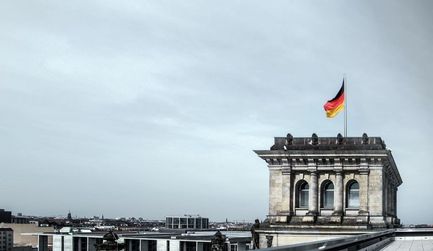
Education in Finland

Education in Italy

Education in Australia

Secondary education in China

Education in the United Kingdom- Statistics & Facts
Overcrowded classrooms and the pandemic pose challenges, how uk students are evaluated, key insights.
Detailed statistics
Proportion of GCSE entries that achieved a pass grade in the UK 1988-2023
Government spending on education in the UK 1999-2023
Number of schools in the UK 2010-2023
Editor’s Picks Current statistics on this topic
Current statistics on this topic.
Education Level & Skills
Proportion of GCSE entries that achieved a pass grade in the UK 2000-2023, by gender
GCSE grade levels in England in 2022-2023
Number of pupils attending schools in the UK 2010-2023
Related topics
Recommended.
- Languages and education in the United Kingdom
- E-learning and digital education
- Education in Europe
Recommended statistics
Schools, pupils, and teachers.
- Basic Statistic Number of schools in the UK 2010-2023
- Premium Statistic Number of full-time teachers in the UK 2015-2023
- Premium Statistic Number of public sector employees in education UK 1999-2022
- Basic Statistic Pupil to teacher ratio in the United Kingdom 2000-2019
- Premium Statistic Number of pupils attending schools in the UK 2010-2023
- Premium Statistic Number of secondary schools in the UK 2010-2023
- Premium Statistic Number of primary schools in the UK 2010-2023
- Basic Statistic Number of nursery schools in the UK 2010-2023
Number of schools in the United Kingdom from 2010/11 to 2022/23
Number of full-time teachers in the UK 2015-2023
Number of full-time equivalent teachers in the United Kingdom from 2015/16 to 2022/23
Number of public sector employees in education UK 1999-2022
Number of public sector employees in education in the United Kingdom from 1st quarter 1999 to 4th quarter 2023 (in 1,000s)
Pupil to teacher ratio in the United Kingdom 2000-2019
Pupil to teacher ratio in the United Kingdom from 2010/11 to 2018/19, by school type
Number of pupils attending schools in the United Kingdom from 2010/11 to 2022/23 (in 1,000s)
Number of secondary schools in the UK 2010-2023
Number of secondary schools in the United Kingdom from 2010/11 to 2022/23
Number of primary schools in the UK 2010-2023
Number of primary schools in the United Kingdom from 2010/11 to 2022/23
Number of nursery schools in the UK 2010-2023
Number of nursery schools in the United Kingdom from 2010/11 to 2022/23
- Basic Statistic Proportion of GCSE entries that achieved a pass grade in the UK 1988-2023
- Basic Statistic Proportion of GCSE entries that achieved a pass grade in the UK 2000-2023, by gender
- Basic Statistic Proportion of GCSE entries that achieved a high pass grade in the UK 1988-2023
- Basic Statistic GCSE entries that achieved a high pass grade in the UK 2000-2023, by gender
- Basic Statistic GCSE grade levels in England in 2022-2023
- Premium Statistic National 5 pass rates Scotland 2014-2023
- Basic Statistic A Level results in the United Kingdom 2000-2023, by grade
Proportion of GCSE entries awarded a C/4 or higher in the United Kingdom between 1988 and 2023
Proportion of GCSE entries awarded a C/4 or higher in the United Kingdom between 2000 and 2023, by gender
Proportion of GCSE entries that achieved a high pass grade in the UK 1988-2023
Proportion of GCSE entries awarded a A/7 or higher in the United Kingdom between 1988 and 2023
GCSE entries that achieved a high pass grade in the UK 2000-2023, by gender
Proportion of GCSE entries awarded a A/7 or higher in the United Kingdom between 2000 and 2023, by gender
Percentage of GCSE entries in England in 2022 and 2023, by grade level
National 5 pass rates Scotland 2014-2023
National 5 exam pass rates in Scotland from 2014 to 2023
A Level results in the United Kingdom 2000-2023, by grade
GCE Advanced Level (A Level) results in the United Kingdom from 2000 to 2023, by grade
Economic indicators
- Premium Statistic GVA of the education sector UK 1990-2023
- Basic Statistic Government spending on education in the UK 1999-2023
- Basic Statistic Government spending on education as a share of GDP in the UK 1999-2023
- Premium Statistic Government spending on education in the UK 2023, by function
- Basic Statistic Government spending on primary education in the UK 2009-2023
- Basic Statistic Government spending on secondary education in the UK 2009-2023
- Premium Statistic CPI inflation rate for education in the UK 1989-2024
- Premium Statistic CPI for education in the UK 1988-2023
GVA of the education sector UK 1990-2023
Gross value added of the education sector in the United Kingdom from 1990 to 2023 (in million GBP)
Public sector expenditure on education in the United Kingdom from 1999/00 to 2022/23 (in billion GBP)
Government spending on education as a share of GDP in the UK 1999-2023
Public sector expenditure on education as a share of GDP in the United Kingdom from 1999/00 to 2022/23
Government spending on education in the UK 2023, by function
Public sector expenditure on education in the United Kingdom in 2022/23, by sub-function (in million GBP)
Government spending on primary education in the UK 2009-2023
Public sector expenditure on pre-primary and primary education in the United Kingdom from 2009/10 to 2022/23 (in billion GBP)
Government spending on secondary education in the UK 2009-2023
Public sector expenditure on secondary education in the United Kingdom from 2009/10 to 2022/23 (in billion GBP)
CPI inflation rate for education in the UK 1989-2024
CPI inflation rate for education in the United Kingdom from January 1989 to February 2024
CPI for education in the UK 1988-2023
Consumer Price Index for education in the United Kingdom from 1st quarter 1988 to 4th quarter 2023 (2015=100)
Opinions and views
- Basic Statistic Perception on how good or bad education is in Great Britain 2020-2024
- Basic Statistic Decisive factors for parents choosing an education provider in England 2021
- Basic Statistic Opinion on what should change at schools in England in 2021
- Basic Statistic Opinion on if the education system prepares children for work in England in 2021
- Basic Statistic Opinion on if the school system in England is improving in 2021
Perception on how good or bad education is in Great Britain 2020-2024
How good or bad is education nationally in Great Britain? (October 2020 to January 2024)
Decisive factors for parents choosing an education provider in England 2021
When deciding on a childcare provider which of the following, if any, were important to you when making your decision?
Opinion on what should change at schools in England in 2021
If there was to be a radical overhaul of education, what do you think should change?
Opinion on if the education system prepares children for work in England in 2021
How well or badly do you think the education system prepares children for work?
Opinion on if the school system in England is improving in 2021
Do you think the school system in England is better or worse than it was ten years ago, or much the same?
International Comparisons
- Premium Statistic Share of GDP spent on education in Europe 2020
- Basic Statistic Overall PISA score in major European countries 2006-2018
- Basic Statistic PISA results in Europe in 2022, by category
- Basic Statistic Frequency of bullying in European countries 2018
- Basic Statistic Socio-economic inequality in reading attainment in European countries 2018
- Premium Statistic Length of school summer holiday in European countries in 2018/19
Share of GDP spent on education in Europe 2020
Education spending as a share of gross domestic product (GDP) in Europe in 2020
Overall PISA score in major European countries 2006-2018
Overall programme for International Student Assessment (PISA) results in major European countries from 2006 to 2018
PISA results in Europe in 2022, by category
Program for International Student Assessment (PISA) results in selected European countries in 2022, by category
Frequency of bullying in European countries 2018
Share of students who reported being victims of any type of bullying act at least a few times a month in selected European countries in 2018
Socio-economic inequality in reading attainment in European countries 2018
Difference between advantaged and disadvantaged students in PISA reading attainment in European countries in 2018*
Length of school summer holiday in European countries in 2018/19
Length of school summer holidays in selected European countries in 2018/19, in weeks
Further reports Get the best reports to understand your industry
Get the best reports to understand your industry.
- Higher education in the UK
- Gender-based violence in Europe
Mon - Fri, 9am - 6pm (EST)
Mon - Fri, 9am - 5pm (SGT)
Mon - Fri, 10:00am - 6:00pm (JST)
Mon - Fri, 9:30am - 5pm (GMT)

British Education System and Equivalency
The british education system offers a variety of study opportunities. with more than 130 universities included in the national ranking with hundreds of degree programs for students from the uk and around the world, there is no shortage of higher education options. in the uk about one-third of all students go on to some form of higher education and this number is well over 50% for students from scotland. this makes competition for schools very fierce and so it is advised to apply early for courses..

Higher education is the third level of the British education system after high school. It takes place at Universities and Further Education Colleges and normally includes Undergraduate (Foundation Year, Bachelor of Arts -BA, Bachelor of Science -BSc and Top Up ) and Postgraduate study (Master of Arts - MA, Master of Science - MSc, PhD, PGCE).
Around 30% of 18 to 19-year-olds enter full-time higher education. The formal entry requirements to most degree courses are two A-levels at grade E or above. In practice, most offers of places require qualifications in excess of this.
SECONDARY EDUCATION
According to the British education system , children in England go through 2 separate stages of education. They begin with Primary Education at the age of five (5 years old) and this usually lasts until they are eleven (11 years old). Then they move to S econdary School , where they stay until they reach sixteen, seventeen, and eighteen years of age (16, 17, 18 years old). The main categories of school are State Schools (Local authority-maintained schools) that are Free to all children between the ages of 5 - 16 and Independent schools (Private or Public Schools) where parents pay for their children's education.
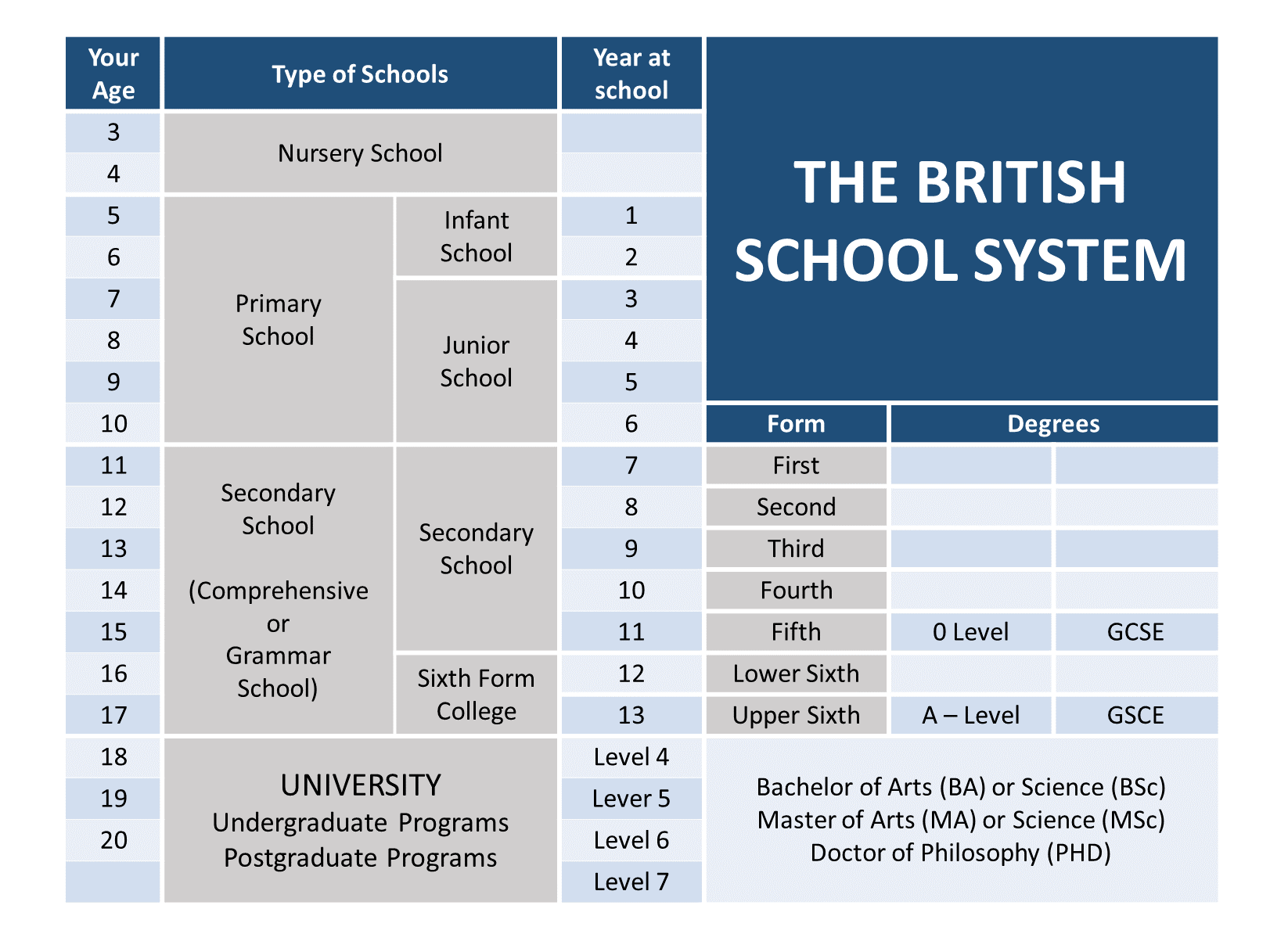
State schools
In the UK 93% of the children in England and Wales go to "state schools". State schools are non fee-paying , funded from taxes, and most are organized by Local Authorities (LA).
Parents are expected to make sure that their child has a pen, pencil, ruler etc. but the cost of other more specialized equipment, books, examination fees are covered by the school.
Parents are, however, expected to pay for their child's school uniform and items of sportswear. Charges may also be made for music lessons and for board and lodgings on residential trips. Schools may ask for voluntary contributions for school time activities - but no pupil may be left out of an activity if their parents or guardian cannot or do not contribute.
Stage 1 - Primary schools (5 - 11-year-olds)
The first level of the British Education system is known as primary education. These are almost always mixed-sex and usually located close to the child's home. Children tend to be with the same group throughout the day, and one teacher has responsibility for most of the work they do.
Parents are strongly encouraged to help their children, particularly with reading and writing, and small amounts of homework are set to all children, even during the early years at school.
Stage 2 - Secondary schools (11 - 16-year-olds)
Most children transfer at the age of 11 - usually to their nearest secondary school, though the law allows parents in England and Wales to express preferences for other schools too. A place has to be offered at the parents' preferred school unless the school has more applicants than places; in that case, it will admit the children who have the highest priority under its published admission arrangements which can vary a little in different places. Most secondary schools cater to both sexes. They tend to be much larger than primary schools.
- Comprehensive schools: Nearly 88% of secondary school pupils in England go to comprehensive schools, as do all pupils in Wales. These take children of all abilities and provide a wide range of secondary education for all or most of the children in a district from 11 to 16 or 18.
- Grammar Schools are selective, they offer academically oriented general education. Entrance is based on a test of ability, usually at 11. Grammar schools are single sexed schools i.e. children either go to a Boys Grammar School or a Girls Grammar School. There are grammar schools in Northern Ireland and some parts of England.
Independent Schools
Independent Schools, known as private/public schools, are part of the British education system. 7% of the children in England go to independent schools. Parents pay for their children to attend these schools. The most famous public schools are Eton, Harrow, and Winchester.
- Prep Schools: A preparatory school is a school to prepare pupils to go to a public school.
- Public /Private Schools: A public school is an independent secondary school. Public schools in England are not run by the government. The entrance exams used by most public schools are known as Common Entrance exams and are taken at the age of 11 (girls) or 13 (boys).
Education after the age of 16 and above
The British education system allows children to leave school on the last Friday in June as long as they will be 16 years old by the end of that year's summer holidays. However, all young people must now stay in some form of full-time education or training until their 18th birthday, for example at a college.
If your child is aged 16 to 24 and not quite ready to start an apprenticeship, they could consider a Traineeship. Traineeships are designed to help young people who want to get an apprenticeship or job but don't yet have the appropriate skills or experience.
Levels of education and Professional Certificates
In England, Wales and Northern Ireland, there are 8 Levels of education after Secondary school– as well as an Entry Level , to help you begin studying or pursue a higher degree. These are set out by something known as the RQF (Regulated Qualifications Framework).
All levels are suitable also for foreign students, living in the UK or migrant workers that left their own countries without achieving a final certificate of General Secondary Education and would like to pursue further education.

Entry Level is the most basic form of qualification and usually provides an introduction into education. They aren’t generally compulsory. Entry level qualifications are available three different sub-categories, which progressively get more difficult: entry levels 1, 2 and 3. The Entry Level is perfect for Anyone looking to learn a new subject or language, as well as those looking to enter formal education.
Level 1 (often achieved in Years/Class 10 and 11 of Secondary school) is the first formal rung on the numbered system of qualifications. This level is perfect for students aged 15-16, or anyone looking to further their education. You won’t necessarily have to complete an entry level qualification to move onto Level 1.
Level 2 is the next step up from Level 1 (also often achieved in Years 10 and 11of SE). It is perfect for those aged 15-16, or anyone looking to further their education. Because of the high standard of their grades, Level 2 learners will usually progress to Level 3 professional qualifications.
Level 3 generally shows greater knowledge in a subject (often achieved in Years 12 and 13 of SE) or in centres for further education. It is perfect for those who are looking to continue their education at a University or a College, or who want to specialise in a particular subject.
Level 4 is indicative of a greater understanding and a higher level of learning than that gained through core modules at the secondary education level. Level 4 acts as the bridge between level 3 and 5, and can help people progress to the next stage of education when they might not have been able to with their previous qualifications.
Level 5 demonstrates knowledge of a subject which goes beyond what was taught during secondary education. After achieving a Level 5 certificate students can proceed in a Top Up course at a University or a college for a year and get a Bachelor Degree. It is perfect for anyone looking to move on to university, or other forms of higher education.
Level 6 refers to qualifications gained at degree level, indicating the bearer has graduated from a centre for further education. It is perfect for anyone who wants to take their knowledge of a subject past secondary education level – whether that’s to gain a degree of a higher level NVQ or certificate. Also the first step for those looking to pursue a master’s.
Level 7 refers to a level of education equivalent to a master’s degree and is generally attained in a centre for further education. It is perfect for anyone looking for a qualification which validates knowledge beyond degree level. After Level 7, there’s only one more level – a doctorate (PhD) or its equivalent.
Level 8 refers to a doctorate level of education, often known as a PhD. Level 8 is perfect for anyone looking to achieve the highest formal level of education possible in England, Wales and Northern Ireland – and/or become a fully qualified Doctor.
Ready to check the courses we offer?
UNI Britannica is accredited by British Council to operate as an educational agency. We represent some of the top UK universities and schools and offer hundreds of programs for students in secondary and higher education. Find out what you can study with us.
Leave a Reply Cancel reply
Your email address will not be published. Required fields are marked *
Sign me up for the newsletter!

British Culture, British Customs and British Traditions
The british education system, england | wales | scotland | northern ireland | primary | secondary grammar schools | public schools | costs higher education | degrees and graduation qualifications.
With dictionary look up - Double click on any word for its definition. This section is in advanced English and is only intended to be a guide, not to be taken too seriously!
Education in England may differ from the system used elsewhere in the United Kingdom .
Basically, there are two systems: one covering England, Wales and Northern Ireland and one covering Scotland. The two education systems have different emphases. Traditionally the English, Welsh and Northern Irish system has emphasised depth of education whereas the Scottish system has emphasised breadth. Thus English, Welsh and Northern Irish students tend to sit a small number of more advanced examinations and Scottish students tend to sit a larger number of less advanced examinations. It should be noted that local English practice can vary from this general picture although Scottish practice is well nigh universal.
Education in Wales
Nowadays education in Wales differs slightly from the system used in England. The statutory national key stage tests in Wales were, until 2000, the same as in England and were managed by the School Curriculum and Assessment Authority (SCAA). In 2000, the National Assembly for Wales took responsibility for these tests in Wales, at which point they were developed by test agencies on behalf of the Awdurdod Cymwysterau, Cwricwlwm ac Asesu Cymru (ACCAC), whilst the tests in England were developed for the Qualifications and Curriculum Authority (QCA). In 2002, the Welsh Assembly decided to cease the tests at Key Stage One. Instead, optional teacher assessment materials were provided to schools in 2003 for use in English, mathematics and Welsh . These had been adapted from materials that had originally been developed by the National Foundation for Educational Research (NFER) and the other test agencies to be used as statutory assessment materials for 2003. At the end of 2003, the Daugherty Report was commissioned by the Welsh Assembly to undertake a review of the country's assessment procedures. The interim report by the committee was perceived by the media as supporting a complete abolishment of the assessments at key stages two and three.
The school years in England and Wales
In general, the cut-off point for ages is the end of August, so all children must be of a particular age on the 1st of September in order to begin class that month.
- Reception, age 4 to 5
- Year 1, age 5 to 6
- Year 2, age 6 to 7 (KS1 National Curriculum Tests - England only)
- Year 3, age 7 to 8
- Year 4, age 8 to 9
- Year 5, age 9 to 10
- Year 6, age 10 to 11 (Eleven plus exams in some areas of England, Key Stage 2 National Curriculum Tests)
- Year 7, old First Form, age 11 to 12
- Year 8, old Second Form, age 12 to 13
- Year 9, old Third Form, age 13 to 14 (Key Stage 3 National Curriculum Tests, known as SATs (Standard Assessment Tests))
- Year 10, old Fourth Form, age 14 to 15
- Year 11, old Fifth Form, age 15 to 16 (old O Level examinations, modern GCSE examinations)
- Year 12 or Lower Sixth, age 16 to 17 (AS-level examinations)
- Year 13 or Upper Sixth, age 17 to 18 (A2-level examinations. Both AS-levels and A2-levels count towards A-levels .)
In some regions of England, pupils attend a Lower (Primary) School before going to, a Middle School between 8 and 12 or, more commonly 9 and 13, and then a High School or Upper School. Other, more vocational qualifications offered including GNVQs and BTECs .
Education in Scotland
Education in Scotland differs from the system used elsewhere in the United Kingdom . Basically, there are two systems: one covering England , Wales , or Northern Ireland and one covering Scotland . The two education systems have different emphases. Traditionally, the English, Welsh and Northern Irish system has emphasised depth of education whereas the Scottish system has emphasised breadth. Thus English, Welsh and Northern Irish students tend to sit a small number of more advanced examinations and Scottish students tend to sit a larger number of less advanced examinations.
The school years in Scotland
- Year 1, age 3 - 5.
- Primary 1, age range 4 - 6.
- Primary 2, age range 5 - 7.
- Primary 3, age range 6 - 8.
- Primary 4, age range 7 - 9.
- Primary 5, age range 8 - 10.
- Primary 6, age range 9 - 11.
- Primary 7, age range 10 - 12.
- First year, age range 11 - 13.
- Second year, age range 12 - 14.
- Third year, age range 13 - 15.
- Fourth year, age range 14 - 16.
- Fifth year, age range 15 - 17.
- Sixth year, age range 16 - 18.
Note that the age ranges specify the youngest age for a child entering that year and the oldest age for a child leaving that year. Also note that children may leave school at the end of any school year after they reach 16 years of age and that they may attend Scottish universities when they are 17. Therefore two sets of national examinations are held. The first set, the Standard Grade examinations, take place in the Fourth year of secondary school and show basic education level. The second set, the Higher examinations take place in the Fifth and Sixth years. A third level, Advanced Higher, is sometimes taken by students intending to study at an English university, or those wishing to pass straight into second year at a Scottish university, and covers the gap between the Scottish "Higher" level and the English "Advanced" level courses, although there is not always a one-to-one mapping.
Education in Northern Ireland
Education in Northern Ireland differs slightly from the system used elsewhere in the United Kingdom . The Northern Irish system emphasises a greater depth of education compared to the English and Welsh systems. The majority of examinations sat, and education plans followed, in Northern Irish schools are set by the Council for Curriculum, Examinations and Assessment ( CCEA ).
School holidays in Northern Ireland are also considerably different to the rest of the United Kingdom . Northern Irish schools generally only get 1 day off for the half term holiday (in February, May and October. Christmas holidays usually only consist of a week or so, the same with the Easter vacation, compared to Englands two weeks. The major difference however is that Northern Irish summer holidays are considerably longer with the entirety of July and August off giving a nine week summer holiday.
The school years in Northern Ireland
- Primary 1, age 4 to 5
- Primary 2, age 5 to 6
- Primary 3, age 6 to 7
- Primary 4, age 7 to 8
- Primary 5, age 8 to 9
- Primary 6, age 9 to 10
- Primary 7, age 10 to 11 ( Eleven plus exams to determine secondary school placement.)
- First Form, age 11 to 12
- Second Form, age 12 to 13
- Third Form, age 13 to 14
- Fourth Form, age 14 to 15
- Fifth Form, age 15 to 16 (old O-Level examinations, modern GCSE examinations)
- Lower Sixth, age 16 to 17 (AS-level examinations, where applicable)
- Upper Sixth, age 17 to 18 ( A-levels )
Primary education
Primary or elementary education is the first years of formal, structured education that occurs during childhood. In most Western countries, it is compulsory for children to receive primary education (though in many jurisdictions it is permissible for parents to provide it).
Primary education generally begins when children are four to seven years of age. The division between primary and secondary education is somewhat arbitrary, but it generally occurs at about twelve years of age ( adolescence ); some educational systems have separate middle schools for that period. Primary and secondary education together are sometimes (in particular, in Canada and the United States ) referred to as " K-12 " education, (K is for kindergarten , 12 is for twelfth grade).
Typically, primary education is provided in schools , where (in the absence of parental movement or other intervening factors) the child will stay, in steadily advancing classes, until they complete it and move on to secondary schooling. Children are usually placed in classes with one teacher who will be primarily responsible for their education and welfare for that year. This teacher may be assisted to varying degrees by specialist teachers in certain subject areas, often music or physical education. The continuity with a single teacher and the opportunity to build up a close relationship with the class is a notable feature of the primary education system. Over the past few decades, schools have been testing various arrangements which break from the one-teacher, one-class mold.
The major goals of primary education are achieving basic literacy and numeracy amongst all their students, as well as establishing foundations in science, geography, history and other social sciences . The relative priority of various areas, and the methods used to teach them, are an area of considerable political debate.
Traditionally, various forms of corporal punishment were an integral part of early education in the UK. This practice has now been outlawed in the UK.
Kindergarten
The German expression kindergarten usually refers to the first level of official education , according to the K-12 educational system. Kindergarten is usually administered in an elementary school .
The equivalent in England and Wales is reception . The Australian equivalent of this is the preparatory grade (commonly called 'grade prep' or 'prep'), which is the year before the first grade. In the state of New South Wales , however, it is called kindergarten. At least in Victoria , kindergarten (distinct from grade prep) is a form of, and used interchangeably with, pre-school .
The first kindergarten was opened in 1837 in Bad Blankenburg , Germany by Friedrich Wilhelm August Fröbel .
The first kindergarten in the United States was established by Margarethe (Margaretta) Meyer Schurz (wife of activist/statesman Carl Schurz ), in Watertown, Dodge County, Wisconsin .
Youngsters , usually aged 4-6 attend kindergarten to learn the finer points of meeting friends (and enemies), professional authority (in the form of a teacher ), playtime , naptime , drawing , music , sometimes the basics of reading and writing , and various other activities. For children who previously have spent most of their time at home, kindergarten often serves the purpose of training them to be apart from their parents without anxiety.
The youngster continues to Grade 1 after kindergarten.
The actual word "kindergarten", as one may guess, translates to "children's garden". Many private businesses in the USA name their day-care businesses 'Kindergarten' or 'Kindergarden'. Kindergarten establishment (day-care) in Germany are for pre-school children of all ages and are often run by churches, city or town administrations. Kindergartens (German plural Kindergärten ) in Germany are not a part of the actual school system, such as in the USA.
Kindergartens often last only for half a day (morning or afternoon), though in many locations there are full-day kindergartens.
Elementary school
The elementary school consists of the first seven years of school, that is, grades 1 through 5 or 6, as well as kindergarten , a preliminary year of school before grade 1 (known in England and Wales as ' Reception '). Originally, however, it was studied after primary school in the 19th century, (some schools that have only the youngest students are called primary schools to this day). Also known as grammar school in the United States it is a major segment of compulsory education. Until the latter third of the 20th century, however, grammar school (or elementary school) was grades 1 through 8. After grammar school, one usually attends high school . (In many districts, grades 5-8 or 5-9 were called " middle school ", or further separated into " intermediate school ", "middle school", and/or " junior high school ".)
Secondary education
Secondary education , or secondary school , is a period of education which follows directly after primary education (such as intermediate school or elementary school ), and which may be followed by tertiary or "post-secondary" education. The purpose of a secondary education can be to prepare for either higher education or vocational training . The exact boundary between primary and secondary education varies from country to country and even within them, but is generally around the seventh to the tenth year of education, with middle school covering any gaps. Secondary education occurs mainly during the teenage years. Primary and secondary education together are sometimes (in particular, in Canada and the United States ) referred to as " K-12 " education, ( K is for kindergarten , 12 is for twelfth grade).
Grammar schools in the United Kingdom
In education in the United Kingdom , a grammar school is a secondary school attended by pupils aged 11 to 18 to which entry is controlled by means of an academically selective process consisting, largely or exclusively, of a written examination . After leaving a grammar school, as with any other secondary school, a student may go into further education at a college or university .
The examination is called the eleven plus . Partly due to the failure to fully implement the tri-partite system prescribed by the 1944 Education Act, the examination came to be seen as delivering a pass/fail result with the academically selected pupils passing and attending grammar schools and the remaining pupils being deemed to have failed and being consigned to the poorly funded schools euphemistically designated Secondary Modern Schools .
This arrangement proved politically unsustainable, and, over the period 1960 to 1975, non-selective ("comprehensive") education was instituted across a substantial majority of the country. The eleven plus examination had been championed by the educational psychologist Cyril Burt and the uncovering of his fraudulent research played a minor part in accelerating this process.
To understand grammar schools in the UK, some history is needed. After World War II , the government reorganised the secondary schools into two basic types. Secondary moderns were intended for children who would be going into a trade and concentrated on the basics plus practical skills; grammar schools were intended for children who would be going on to higher education and concentrated on the classics, science, etc. This system lasted until the 1960s, at which point changes in the political climate led to the general acceptance that this was a discriminatory system which was not getting the best out of all children. This was partly because some authorities tended to prioritise their budgets on the grammar schools, damaging the education prospects of children attending secondary moderns.
The decision was taken to switch to a single type of school designed to give every child a complete education. That is why this new type of school is called a comprehensive school. However the timetable of the changeover was left to the local authorities, some of whom were very resistant to the whole idea and thus dragged their feet for as long as possible. The result is that there is now a mixture. Most authorities run a proper comprehensive system, a few run essentially the old system of secondary moderns and grammar schools (except the secondary moderns are now called "comprehensives"). Some run comprehensive schools along side one or two remaining grammar schools.
The Labour government that came to power in 1997 instituted measures that allowed parents to force a local referendum on whether to abolish grammar schools in their area. The form of this referendum depends on whether there is still a full two-tier system running, in which case all parents with children at primary schools in the area are eligible to vote, or whether there are only a few grammar schools in the area, in which case only those parents with children at primaries that regularly send children to the grammar school are eligible. By 2003, only a few referenda had taken place and none of these had delivered the requisite majority for conversion.
The debate over selective education has been widened by other measures introduced by the Labour government, allowing schools to select a portion of their intake by "aptitude" for a specific subject. There are many who think that selection allows children to receive the form of education best suited for their abilities, while "one-size-fits-all" comprehensives fail everybody equally. One of the greatest attacks on the comprehensive system is that it leads, in essence, to selection on the grounds of wealth as the good schools are generally located in areas with expensive housing, so children from poor areas are denied the possibility of attending them. Conversely, there are many who think that the selection of children at 11 divides them into "successes" and "failures" at that age, and is therefore wrong. The current Labour government, from the party that originally championed comprehensive education, appears to favour the first of these groups, and their introduction of local referenda on grammar schools has been attacked by opponents of selective education as an unworkable system designed to give the semblance of choice while maintaining the status quo.
Private schools generally give the same sort of education as grammar schools, but there are exceptions; Gordonstoun for one. In areas where the local authority provides a comprehensive education – which some parents don't like for various reasons – independent schools are particularly common.
Higher education
Higher education is education provided by universities and other institutions that award academic degrees , such as university colleges, and liberal arts colleges .
Higher education includes both the teaching and the research activities of universities, and within the realm of teaching, it includes both the undergraduate level (sometimes referred to as tertiary education ) and the graduate (or postgraduate ) level (sometimes referred to as quaternary education). Higher education differs from other forms of post-secondary education such as vocational education . However, most professional education is included within higher education, and many postgraduate qualifications are strongly vocationally or professionally oriented, for example in disciplines such as law and medicine.
Degrees and Graduation
There is a three-level hierarchy of degrees ( Bachelor , Master , Doctor ) currently used in the United Kingdom.
A graduate student (also, grad student or grad in American English , postgraduate student or postgrad in British English) is an individual who has completed a bachelor's degree (B.A., B.S./B.Sc., or another flavor) and is pursuing further higher education , with the goal of achieving a master's degree (M.A., M.S./M.Sc., M.Ed., etc.) or doctorate (Ph.D., Ed.D., D.A., D.Sc., D.M.A., Th.D., etc.) In the United States, graduate education can also refer to those pursuing a post-master's Educational Specialist degree or post-master's Certificate of Advanced Study. The term usually does not refer to one in medical school and only occasionally refers to someone in law school or business school .
Admission to do a research degree in the UK typically requires the sponsorship of a professor. Admission to do a master's degree (based on coursework) depends upon having an undergraduate degree, generally in a related subject.
Postgraduate work at universities in the UK is very intense.
It is very difficult to obtain funding for postgraduate study in the UK. There are a few scholarships for master's courses, but these are rare and dependent on the course and class of undergraduate degree obtained. Most master's students are self-funded.
Funding is available for some Ph.D. courses. There is more funding available to those in the sciences than in other disciplines
The costs for a normal education in the United Kingdom are as follows:
- Primary: No Charge
- Secondary: No Charge
- Further (Secondary) Education in either a sixth form or college: No Charge if under 19 in that particular academic year or on a low income.
- Higher / Tertiary Education (University): A tuition fee per year (varies from £1,000 to £9,000).
Primary and Secondary education can also be charged for, if a fee-paying ( public ) school is attended by the child in question.
Public schools in the UK
A public school, in common British usage, is a school usually prestigious and historic, which charges fees, does not restrict admissions, and is financed by bodies other than the state, commonly as a private charitable trust. Often but not always they are boarding schools. Confusingly to a non-native English speaker a public school is actually a private school! In British usage, a government-run school (which would be called a 'public school' in other areas, such as the United States ) is called a state school in the UK.
Many of the independent schools in the UK do not refer to themselves as public schools . Many choose to use the term independent school. In part this is due to a sense that some 'minor' public schools have many of the social associations and traditions of public schools but without the quality of teaching and extracurricular activities.
The term 'public' (first adopted by Eton) historically refers to the fact that the school was open to the paying public, as opposed to, a religious school that was only open to members of a certain church, and in contrast to private education at home (usually only practical for the very wealthy who could afford tutors).
Public schools played an important role in the development of the Victorian social elite. Under a number of forward-looking headmasters leading public schools developed a curriculum based heavily on classics and physical activity for boys and young men of the upper and upper middle classes. They were schools for the gentlemanly elite of Victorian politics, armed forces and colonial government. Often successful businessmen would send their sons to public school as a mark of participation in the elite (it was Martin Wiener's opposition to this tendency which inspired his 1981 polemic "English Culture and the Decline of the Industrial Spirit: 1850-1980", which became a huge influence on the Thatcher government's opposition to old-school gentlemanly Toryism and, by default, a key reason for the recent upsurge of privately-educated pop singers in the UK).
Public schools often relied heavily on the maintenance of discipline by older boys, both to reduce staffing costs and as preparation for military or public service.
While under the best circumstances the Victorian public schools were superb examples of education, the reliance on corporal punishment and the prefect system could also make them awful. The classics-based curriculum was criticised for not providing skills in sciences or engineering.
The public school system influenced the school systems of the British empire to an extent. Recognisably 'public' schools can be found in many Commonwealth countries.
Today most public schools are highly selective on academic grounds, as well as financial grounds (ability to pay high fees) and social grounds (often a family connection to the school is very desirable in admissions).
Here are some of the web sites available for public schools in the UK.
- Bedford School
- Bradfield College
- Charterhouse
- Cheltenham College
- Clifton College
- Dover College
- Dulwich College
- Eton College
- Harrow School
- Lancing College
- Malvern College
- Oswestry School
- Radley College
- Repton School
- Rossall School
- Rugby School
- Shrewsbury School
- Tonbridge School
- Wellington College
- Westminster School
The Independent Schools Council (ISC) has a searchable list of independent/public schools in Britain. However, the head teachers of major British independent schools usually belong to the Headmasters' and Headmistresses' Conference (HMC), as distinct from the Secondary Heads' Association, and it is generally considered that any school that is a member of HMC is entitled to call itself a Public School.
Slang peculiar to or originating from public schools
The following list includes some commonly used slang terms, and some historic slang, used at public schools in the UK:
Text is available under the Creative Commons Attribution-Share Alike License.

Schools In The Great Britain
- Updated on April 12, 2022
- In Education
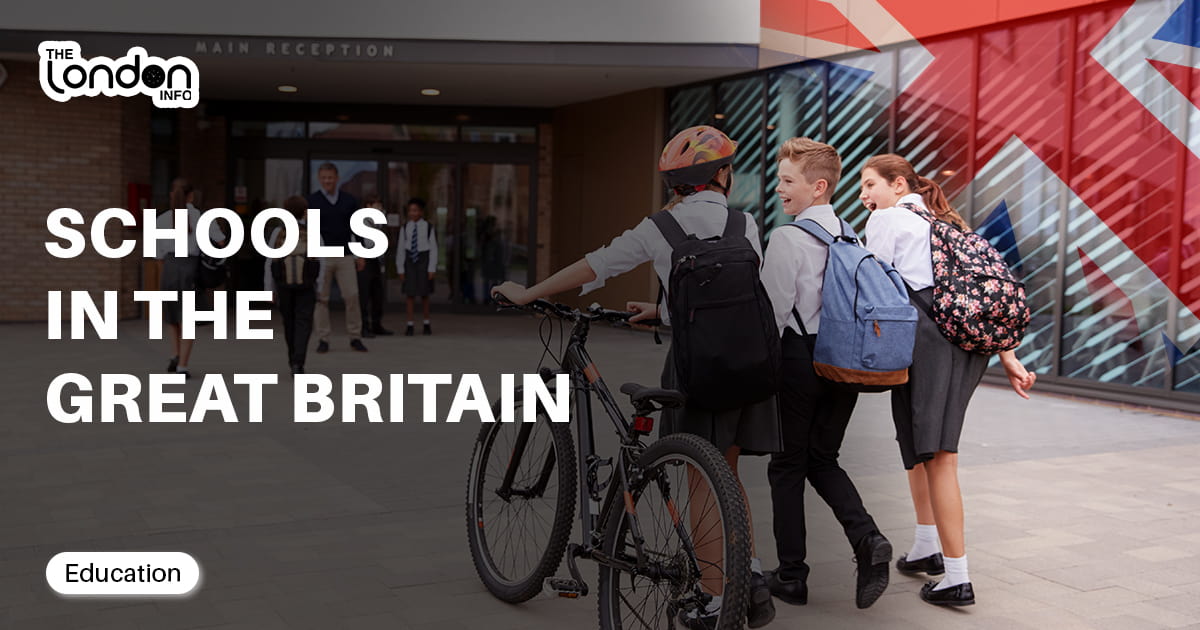
Education in the United Kingdom is a devolved topic, with separate systems run by independent governments in each of the United Kingdom’s countries: England is under the control of the UK Government. Primary education, secondary education, further education, and higher education are the four main parts of the UK education system. Children in the United Kingdom are required to attend primary and secondary school from the age of five until they reach the age of sixteen.
In the United Kingdom, a public school, sometimes known as an independent school, is one of a small number of institutions that educate secondary-level students for a fee and are financially and administratively independent of the state system. When the renown of certain grammar schools went beyond their immediate surroundings in the 18th century, the term “public school” was coined.
They began accepting kids whose parents could afford residential fees, and therefore became known as public schools, as opposed to private or local schools. By the late twentieth century, the phrase “independent school” was becoming increasingly popular among educational institutions.
10 Outstanding British Public Schools In The Great Britain To Consider:
Are you considering sending your children to the United Kingdom for a British education ? In contrast to the United States, the United Kingdom refers to private schools as “public,” while non-fee-paying institutions are referred to as “state schools” or “comprehensives.”
For your consideration, we’ve created a list of some of the greatest British public schools with exceptional educational standards and first-rate facilities:
Benenden School
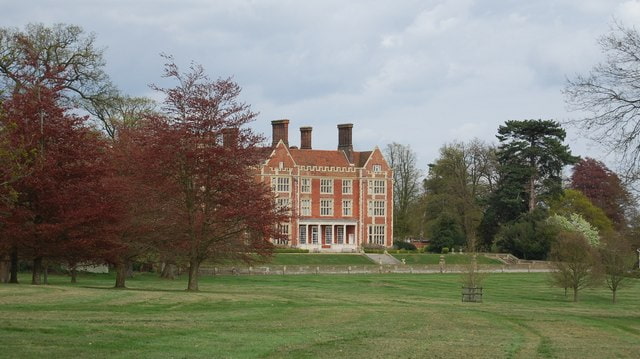
Benenden School is one of the top school in the heart of Kent, covering 100 acres. A state-of-the-art Science Centre, a 300-seat theatre, and a new all-weather sports area and pavilion are among the spectacular features. The Benenden Professional Skills Programme, which began in 2016, teaches Sixth Formers important commercial, financial, and life skills, while the Benenden Diploma is a two-year customised curriculum for the Fourth and Upper Fourth.
High-profile lectures and workshops led by skilled guests round out the curriculum. Benenden’s co-curricular program also offers more than 150 activities. Three to four years prior to entrance, there is a registration fee. The location of this school is Benenden, Cranbrook, Kent.
Charterhouse
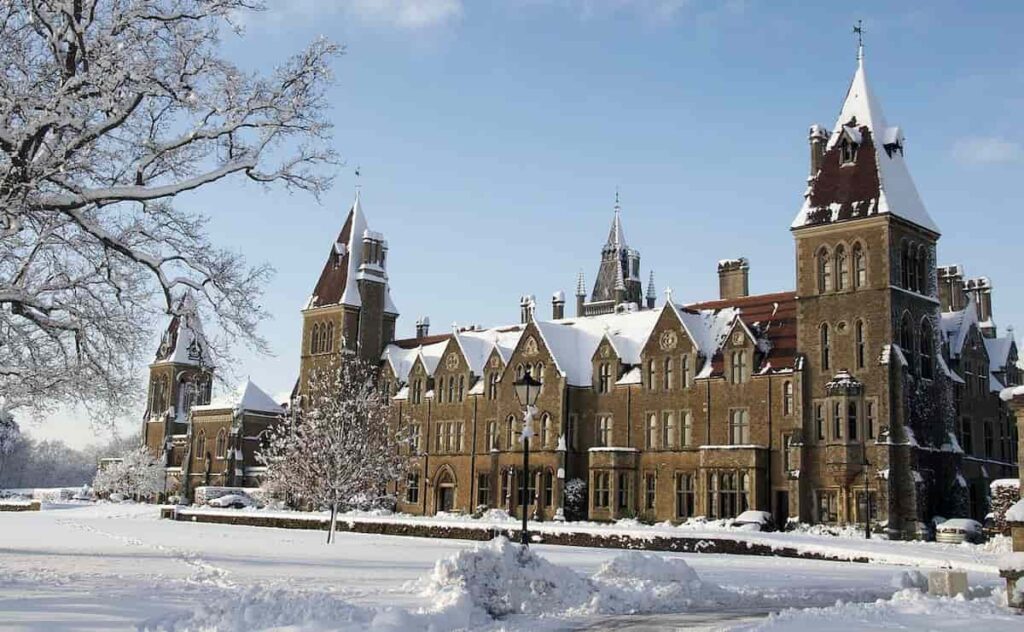
The Charterhouse is a place where you can go to learn a sense of history penetrates this more than 400-year-old building. A golf course, tennis courts, hockey fields, and other sporting facilities are available at the school. Charterhouse is mostly a boys’ school, however it does welcome girls in the sixth form. Beginning in 2021, the school will transition to full coeducation for students aged 13 and older, inviting girls into the Fourth Form, with the goal of having females in every year group by September 2023.
Over the next decade, the school roll will grow from 800 now to about 1,000, with the increase signifying extra spaces for females. The school created a new uniform for pupils in grades 9 and 10 to commemorate the anniversary. Godalming, Surrey is the location of the Charterhouse.
Eton College
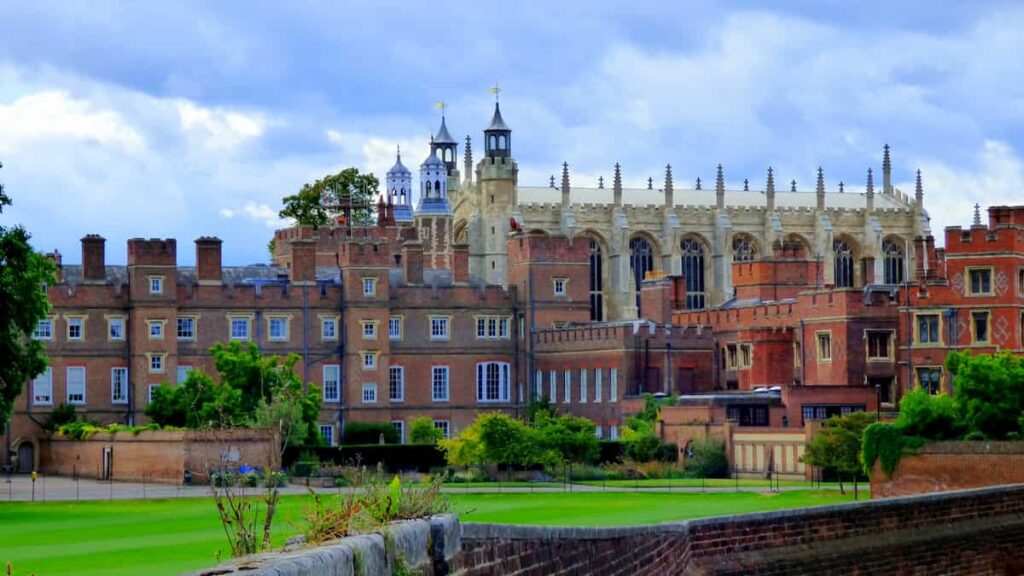
Eton College is a prestigious school in the United Kingdom. Eton College, one of the most well-known all-boys’ English public schools in the world, was founded by Henry VI in 1440. Prince William and Prince Harry, as well as 19 British prime ministers, are among its graduates. Eton is one of just four remaining single-sex boys’ schools in the United Kingdom, and it places a strong emphasis on academics, with an incredibly high success rate for admission to Oxbridge and other top UK universities.
Star Academies and the school have formed a partnership to open three selective sixth form colleges. These state schools (the British counterpart of government-funded schools) are designed to help young people from disadvantaged socioeconomic backgrounds gain admission to a British academic institution.
This year, Eton College also announced the Orwell Awards 2022, which will provide fully financed sixth-form scholarships to brilliant students who would otherwise be unable to attend Eton. School buildings are modernized on a regular basis in accordance with the school’s development plan.
The Tony Little Centre for Innovation and Study in Learning, the flagship new facility, is committed to enhanced research into neuroscience, new apps, and changing technology. When it comes to sports, there are many pitches for cricket, football, and hockey, as well as a gymnasium with sports halls, weight training rooms, fencing and martial arts rooms, a climbing wall, and a 25-meter swimming pool. The location of Eton College is Eton, Berkshire.
Gordonstoun
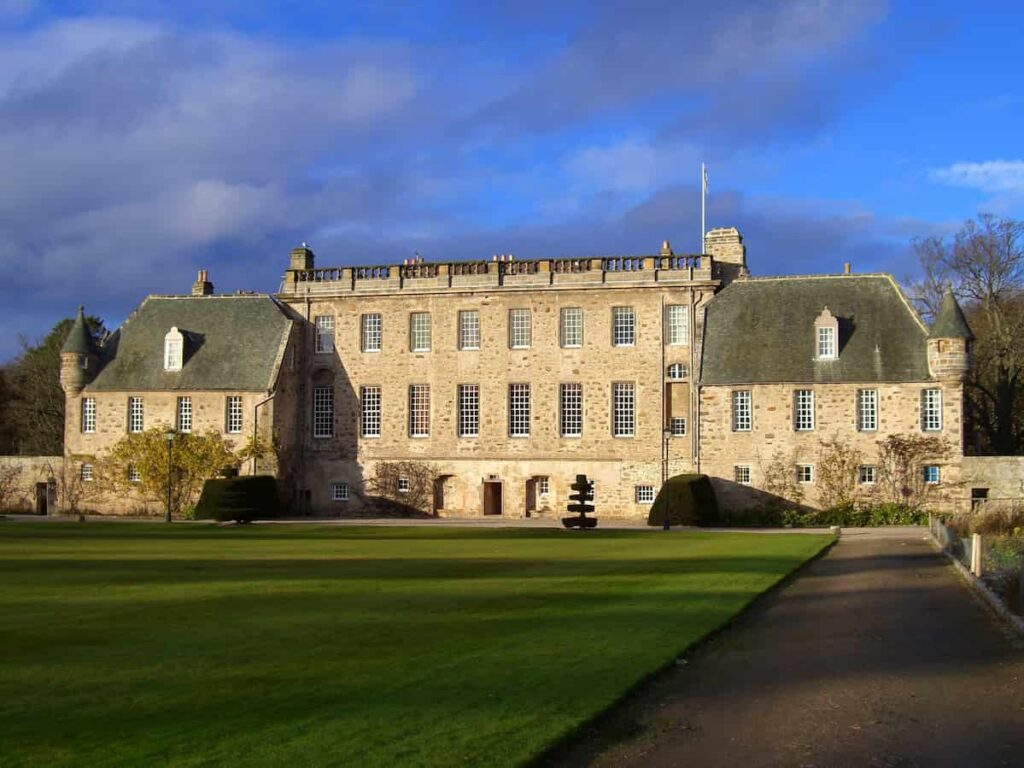
Gordonstoun is a town in Scotland. The school is located in the Scottish Highlands, on an 80-hectare woodland campus, and is close to international airports in Inverness and Aberdeen. A sports center and a performing arts complex with dance studios, drama rehearsal spaces, and a theater have been added to the campus.
This residential school is noted for its life-skills-building character-building outdoor education curriculum. Both Prince Philip and Prince Charles received their education in this country. It’s in the lovely town of Elgin, Moray, Scotland. On June 10, 2021, the school relaunched the Moray Badge award, which would have been Prince Philip’s 100th birthday. To commemorate the Queen’s Platinum Jubilee year in 2022, the award will be extended for another year. All students from the Senior and Junior Schools are eligible for the award, which requires them to participate in activities that will help them develop new abilities, such as water sports, hiking, and gardening.
This residential school is known as the best school in UK, and is noted for its life-skills-building character-building outdoor education curriculum. Both Prince Philip and Prince Charles received their education in this country.
Harrow School
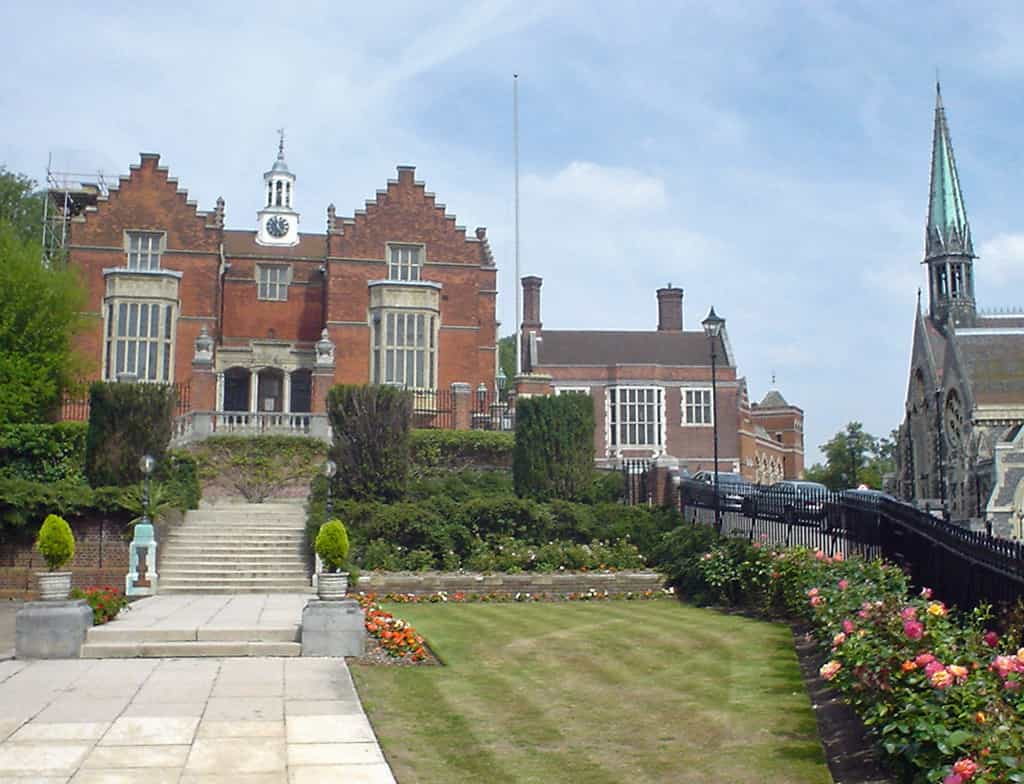
Harrow School is a secondary school in the London Borough of Harrow This all-boys, full-boarding institution was founded in 1572 and is one of the most prestigious in the world. Conservation areas, a golf course, and a working farm are all part of the school’s 300-acre grounds.
More than two-thirds of students achieved A*-A marks in the 2020 academic results, with seven students receiving five or more A* ratings. Students graduating in 2020 will continue their education at prestigious universities in the UK and the US, including seven of the top ten universities in the QS World University Rankings , including Oxford, Cambridge, Stanford, and Harvard. Harrow on the Hill, Harrow, London is their location.
The King’s School, Canterbury
The King’s School in Canterbury is divided into two main areas, each comprising 13 boarding houses and three day houses. By 2020, a new Science Centre will be open, with seven new physics laboratories, a specialized science research space, an auditorium, and restored biology and chemistry facilities.
The Malthouse building, which is near to the main school site, was renovated and opened as a Performing Arts Centre in 2019. A 350-seat theatre with an orchestra pit, dance and drama studios, and catering facilities are all available. In 2018, the International College also opened its doors. It will educate international students aged 11 to 16, preparing them to enter a senior school in Years 9, 10 or 12. It is part of The King’s Family of Schools.
It is situated in Canterbury’s picturesque Precincts which is known to have the best education in UK. The institution, which dates back to 597 CE, intends to “anchor a 21st-century education within the storied heritage of the country’s oldest school.” The traditional King’s Week, a festival of music, drama, art, and sporting events, concludes each academic year.
Westminster School
Westminster School is located in the center of London, near the Houses of Parliament and the Supreme Court, in the precincts of Westminster Abbey. A new Sports Hall, a fully refurbished science center, design and technology studios, a purpose-built theatre, and a music center are among the facilities.
In the last five years, Westminster students have consistently obtained above 54.5 percent A* or equivalent, making it Britain’s top academic school. Little Dean’s Yard, Great Smith Street, Westminster, London is the location.
Winchester College
Winchester College is an all-boys institution with more than 80 listed buildings, many of which are of national significance and are still in use, indicating more than six centuries of continuous expansion. There are roughly 100 hectares of grounds, which include 20 acres of sports fields and four acres of formal gardens. Students can row on the River Itchen and play golf on the school’s 18-hole golf course.
The history of the school may be dated back to 1382. It has been at its current site for 600 years, the longest continuous history of any English institution. College Street in Winchester, Hampshire is where you’ll find it.
Wycombe Abbey
Wycombe Abbey is surrounded by 170 acres of conservation land. The Sports Centre, which has a 25-meter indoor pool, the Performing Arts Centre, which has a theater and recital hall, dance and fitness studios, and huge sports pitches, are all modern, state-of-the-art facilities. For both students and guests, there is a cafe called The Courtyard.
Wycombe Abbey is one of the best girls’ boarding schools in the UK, with consistently high GCSE and A-Level scores. The distinguished school also has a branch in Hong Kong, Wycombe Abbey School Hong Kong, which opened in September 2019 and is a co-educational primary school.
St Paul’s School
St Paul’s was founded in 1509 as a boys’ school. The old school, in St Paul’s Churchyard, was destroyed in the Great Fire of London in 1666 and rebuilt thrice since then. Lessons last 35 minutes and are followed by a two-hour lunch break, giving students opportunity to participate in extracurricular activities.
Almost a third of the school’s students move on to Oxbridge, and the institution is known for its excellent exam achievements. The school is now being restored and enlarged as part of the Masterplan, a £150 million project. It is located in Barnes, London, on Lonsdale Road. St Paul’s has an area of more than 17 hectares along the Thames.
The campus is unique among London schools in terms of the on-site amenities it provides, which include a boat club, a theatre, a darkroom, a cricket pitch, and a recital hall as well as a design technology studio.
Facts about Schools in England
In England, All children between the ages of 5 and 16 are entitled to free and compulsory education. Some children receive their education at home rather than in a school setting. In England, children’s education is usually separated into two stages.
They begin primary education at the age of five and continue until they are eleven years old. A kid will attend primary school in England from the age of five to eleven, according to the National Curriculum. A typical school day for most students starts between 8:00 and 9:00 a.m. and concludes between 15:00 and 16:00 p.m.
The essential topics of math, science, and reading are taught in primary schools in the United Kingdom. The school day may last from 9 a.m. to 3.30 p.m., although many schools provide breakfast clubs beginning at 8 a.m. (to accommodate pupils whose parents work full-time) and after-school clubs lasting until 4.30 or 5 p.m.
Education System in England
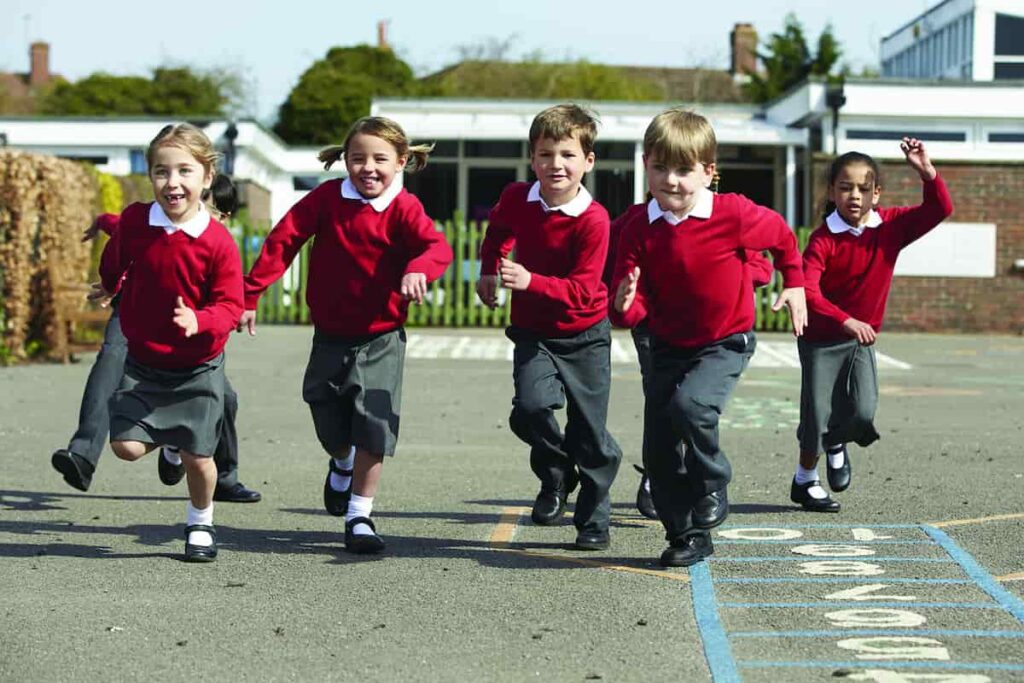
The academic reputation of the United Kingdom is well-known around the world. Our educational approach, which is based on a centuries-old tradition, incorporates the most up-to-date learning theory through colleges that consistently rank at the top of international rankings. Employers all across the world seek out our creative teaching methods, which generate successful, versatile graduates.
Primary education, secondary education, further education, and higher education are the four main parts of the UK education system . Children in the United Kingdom are required to attend primary and secondary school from the age of five until they reach the age of sixteen. The UK’s continually high educational quality has served to put us at the forefront of worldwide research and made us a solid favorite with international students from all around the world.
In terms of science and research, we are ranked second in the world, with 54 percent of our production being world-leading.
Stages of the education in England
Primary, secondary, and higher education are the three levels of the English educational system. At the age of five, children must begin attending school. Education is compulsory till the age of sixteen. At the age of eleven, the majority of students move from primary to secondary school.
Students may then continue their secondary education for another two years (sixth form), resulting to an A level award in most cases, however other qualifications and courses, such as BTEC qualifications and the International Baccalaureate, are available.
A three-year Bachelor’s Degree is usually the starting point for higher study. Master’s degrees, either taught or via research, and Doctor of Philosophy degrees, which normally require at least three years to complete, are examples of postgraduate degrees.
Top secondary schools in England
The top secondary schools in England are Queen Elizabeth’s School, Barnet, The Henrietta Barnett School, London, Wilson’s School, Wallington, and The Tiffin Girls’ School.
If you want to find the best school for your children in UK you should research thoroughly. It helps if you’re familiar with the key stages or levels, the curriculum, assessments, and so what’s expected of your child to make confident decisions about their education and support them at school. The numerous forms of state schools, such as academics, free schools, and grammar schools, are discussed. Tests are an inevitable part of school life, whether you like them or not. These are the several examinations and exams someone may be required to take.
The London Info
The London Info website has the most current global news and blog posts to satisfy your curious minds. We have interesting and informative content in 11 categories. We believe that excitement and vibrancy are key in conveying accurate information.
Related Posts

A Basic Guide to Find Accommodation London for Student
- June 9, 2022

Top 5 Colleges in London for Fashion: Application Procedure & Fees
- June 7, 2022

Study Human Resources Management In UK
- March 29, 2022
Leave a Reply Cancel Reply
Your email address will not be published. Required fields are marked *
Name *
Email *
Add Comment *
Save my name, email, and website in this browser for the next time I comment.
Post Comment
Trending now

- Share full article
Advertisement
Supported by
‘You Can Hear a Pin Drop’: The Rise of Super Strict Schools in England
Inspired by the academic success of schools like the Michaela secondary school in northwest London, some principals are introducing tight controls on students’ behavior.

By Emma Bubola
Emma Bubola visited the Michaela Community School in London and interviewed teachers, educational specialists and students from around England.
As the teacher started to count down, the students uncrossed their arms and bowed their heads, completing the exercise in a flash.
Listen to this article with reporter commentary
Open this article in the New York Times Audio app on iOS.
“Three. Two. One,” the teacher said. Pens across the room went down and all eyes shot back to the teacher. Under a policy called “Slant” (Sit up, Lean forward, Ask and answer questions, Nod your head and Track the speaker), the students, aged 11 and 12, were barred from looking away.
When a digital bell beeped (traditional clocks are “not precise enough,” the principal said) the students walked quickly and silently to the cafeteria in a single line. There they yelled a poem — “ Ozymandias ,” by Percy Bysshe Shelley — in unison, then ate for 13 minutes as they discussed that day’s mandatory lunch topic: how to survive a superintelligent killer snail.
In the decade since the Michaela Community School opened in northwest London, the publicly funded but independently run secondary school has emerged as a leader of a movement convinced that children from disadvantaged backgrounds need strict discipline, rote learning and controlled environments to succeed.
“How do those who come from poor backgrounds make a success of their lives? Well, they have to work harder,” said the principal, Katharine Birbalsingh, who has a cardboard cutout of Russell Crowe in “Gladiator” in her office with the quote, “Hold the Line.” In her social media profiles , she proclaims herself “Britain’s Strictest Headmistress.”
“What you need to do is pull the fence tight,” she added. “Children crave discipline.”
While some critics call Ms. Birbalsingh’s model oppressive, her school has the highest rate of academic progress in England, according to a government measure of the improvement pupils make between age 11 and 16, and its approach is becoming increasingly popular.
In a growing number of schools, days are marked by strict routines and detentions for minor infractions, like forgetting a pencil case or having an untidy uniform. Corridors are silent as students are forbidden to speak with their peers.
Advocates of no-excuses policies in schools, including Michael Gove , an influential secretary of state who previously served as education minister , argue that progressive, child-centered approaches that spread in the 1970s caused a behavioral crisis , reduced learning and hindered social mobility.
Their perspective is tied to a conservative political ideology that emphasizes individual determination, rather than structural elements, as shaping people’s lives. In Britain, politicians from the governing Conservative Party, which has held power for 14 years, have supported this educational current, borrowing from the techniques of American charter schools and educators who rose to prominence in the late 2000s.
The hard-right firebrand Suella Braverman , a former minister with two Tory governments, was a director of the Michaela school. Martyn Oliver, the chief executive of a schools group known for its strict approach to discipline, was appointed as the government’s chief inspector for education last fall. Ms. Birbalsingh served as the government’s head of social mobility from 2021 until last year, a position she held while running the Michaela school.
Tom Bennett, a government adviser for school behavior, said that sympathetic education ministers had helped this “momentum.”
“There are lots of schools doing this now,” Mr. Bennett said. “And they achieve fantastic results.”
Since Rowland Speller became the principal of the Abbey School in the south of England, he has cracked down on misbehavior and introduced formulaic routines inspired by Michaela’s methods. He said that a regulated environment is reassuring for students who have a volatile home life.
If one student does well, the others clap twice after a teacher says, “Two claps on the count of two: one, two.”
“We can celebrate lots of children really quickly,” Mr. Speller said.
Mouhssin Ismail, another school leader who founded a high-performing school in a disadvantaged area of London, posted a picture on social media in November of school corridors with students walking in lines. “You can hear a pin drop during a school’s silent line ups,” he wrote.
The remarks triggered a backlash, with critics likening the pictures to a dystopian science fiction movie.
Ms. Birbalsingh argues that wealthy children can afford to waste time at school because “their parents take them to museums and art galleries,” she said, whereas for children from poorer backgrounds, “the only way you’re going to know about some Roman history is if you’re in your school learning.” Accepting the tiniest misbehavior or adapting expectations to students’ circumstances, she said, “means that there is no social mobility for any of these children.”
At her school, many students expressed gratitude when asked about their experiences, even praising the detentions they received, and eagerly repeating the school’s mantras about self-improvement. The school’s motto is “work hard, be kind.”
Leon, 13, said that initially he did not want to go to the school, “but now I am thankful I went because otherwise I wouldn’t be as smart as I am now.”
With around 700 students, Michaela is smaller than the average state-funded secondary school, which has around 1,050, according to the government. It is so famous that it attracts about 800 visitors a year, mostly teachers, Ms. Birbalsingh said. A leaflet handed to guests asks them not to “demonstrate disbelief to pupils when they say they like their school.”
But some educators have expressed concern about the broader zero-tolerance approach, saying that controlling students’ behavior so minutely might produce excellent academic results, but does not foster autonomy or critical thinking. Draconian punishments for minor infractions can also come at a psychological cost, they say.
“It’s like they’ve taken 1984 and read it as a how-to manual as opposed to a satire,” said Phil Beadle, an award-winning British secondary school teacher and author.
To him, free time and discussion are as important to child development as good academic results. He worries that a “cultlike environment that required total compliance” can deprive children of their childhood.
The Michaela school made headlines in January after a Muslim student took it to court over its ban on prayer rituals, arguing that it was discriminatory. Ms. Birbalsingh defended the ban on social media, saying it was vital for “a successful learning environment where children of all races and religion can thrive.”
The high court has not yet issued its decision in the case.
Proponents of the strict model and some parents say that children with special education needs thrive in strict, predictable environments, but others saw their children with learning difficulties struggle in these schools.
Sarah Dalton sent her dyslexic 12-year-old son to a strict school with excellent academic results. But his dread of being penalized for minor mistakes created unbearable stress, and he started showing signs of depression.
“ There was this fear of being punished ,” she said. “His mental health just spiraled.”
When she moved him to a more relaxed school, he started to heal, Ms. Dalton said.
In England, government data last year showed that dozens of superstrict schools were suspending students at a far higher rate than the national average. (The Michaela school was not among them.)
Lucie Lakin, the principal of Carr Manor Community School in Leeds — which does not follow the zero-tolerance model — said that she realized the approach was spreading when a growing number of students enrolled at her school after being expelled. Her school earns high academic scores , but she said that was not the only goal of an education.
“Are you talking about the school’s results being successful, or are you trying to make successful adults?” she asked. “That’s the path you’ve got to pick.”
In the United States, charter schools that adopted similar strict approaches were initially praised for their results. But growing criticism from some parents , teachers and students in the mid-2010s triggered a reckoning in the sector.
In 2020, Uncommon Schools, an American network of charter schools and one of the pioneers of the “no excuses” approach, announced it was abandoning some of its strictest policies, including “Slant.” The organization said it would remove “undue focus on things like eye contact and seat posture” and put greater emphasis on building student confidence and intellectual engagement.
“A titan in the world of education falls to progressive pressure,” Ms. Birbalsingh wrote on social media . “Uncommon you have just let hundreds of thousands of children down.”
Audio produced by Patricia Sulbarán .
Emma Bubola is a Times reporter based in London, covering news across Europe and around the world. More about Emma Bubola
Thank you for visiting nature.com. You are using a browser version with limited support for CSS. To obtain the best experience, we recommend you use a more up to date browser (or turn off compatibility mode in Internet Explorer). In the meantime, to ensure continued support, we are displaying the site without styles and JavaScript.
- View all journals
- Explore content
- About the journal
- Publish with us
- Sign up for alerts
- Published: 01 January 1944
Secondary Education in Great Britain
Nature volume 153 , pages 17–18 ( 1944 ) Cite this article
163 Accesses
Metrics details
THE valuable statement "The Open Door in Secondary Education", issued by the members of the Education Sub-Committee of Nuffield College Social Reconstruction Survey, does full justice to the twin aims of educational reform: maintenance of the quality of the education provided, while making sure that opportunities at present the privilege of a minority become the heritage of the nation. Its six recommendations are accompanied by a brief survey which indicates the rapidity with which opinion has advanced in this field. First, the Statement recommends that in all schools which receive any grants from the State or from local education authorities, tuition should be free and adequate maintenance grants should be given. Secondly, the scales on which grants are made to schools should vary according to the education they provide, especially in equipment, staffing ratio and opportunities for advanced work. To deal with the allocation of grants and with the question of control involved in this second recommendation, establishment by the Board of Education of a school grants central committee on the lines of the University Grants Committee is proposed, assisted by a small number of regional committees.
Article PDF
Rights and permissions.
Reprints and permissions
About this article
Cite this article.
Secondary Education in Great Britain. Nature 153 , 17–18 (1944). https://doi.org/10.1038/153017b0
Download citation
Issue Date : 01 January 1944
DOI : https://doi.org/10.1038/153017b0
Share this article
Anyone you share the following link with will be able to read this content:
Sorry, a shareable link is not currently available for this article.
Provided by the Springer Nature SharedIt content-sharing initiative
Quick links
- Explore articles by subject
- Guide to authors
- Editorial policies
Sign up for the Nature Briefing newsletter — what matters in science, free to your inbox daily.

IMAGES
VIDEO
COMMENTS
Stages. In each country there are five stages of education: early years, primary, secondary, further education (FE) and higher education (HE). The law states that full-time education is compulsory for all children between the ages of 5 (4 in Northern Ireland) and 16. In England, compulsory education or training was extended to 18 in 2015. Before they reach compulsory school age, children can ...
Secondary education, the second stage traditionally found in formal education, beginning about age 11 to 13 and ending usually at age 15 to 18. ... Great Britain's current system of secondary education is the successor to a slightly older system that assigned students at age 11 to one of three types of schools by means of selection tests.
an introduction to the British education system. The education system in the UK is divided into four main parts, primary education, secondary education, further education and higher education. The education system in the UK is also split into "key stages" which breaks down as follows: Key Stage 1: 5 to 7 years old. Key Stage 2: 7 to 11 years old.
For international students coming into the UK for secondary education, it is common to either enter at the age of 11 or wait until the age of 13 and have one year in school before starting the two-year GCSE program which will run from 14 to 16 years old. From the age of 11-14, students will study a broad range of subjects such as Music, Math ...
Secondary school education in England. Typically, children start their secondary education around 11 or 12. Most state secondary schools across the UK are comprehensive, meaning they accept students of all abilities. ... Compulsory secondary education covers five years (11 - 16) and is divided into two stages. Key Stage 3 (KS3) covers Years 8 ...
Education in England is overseen by the Department for Education. Local government authorities are responsible for implementing policy for public education and state-funded schools at a local level. State-funded schools may be selective grammar schools or non-selective comprehensive schools.All state schools are subject to assessment and inspection by the government department Ofsted (the ...
All local-authority-maintained schools in England must teach key stage 4 programmes of study for English and maths to pupils in year 10 from September 2015, and pupils in year 11 from September 2016.
The education system in the UK is also split into "key stages" which breaks down as follows: Key Stage 1: 5 to 7 years old. Key Stage 2: 7 to 11 years old. Key Stage 3: 11 to 14 years old. Key Stage 4: 14 to 16 years old. Generally key stages 1 and 2 will be undertaken at primary school and at 11 years old a student will move onto secondary ...
dary education as it now exists in England. Overview of British Secondary Education There are approximately 5,300 secondary schools in Great Britain. Nearly 50% of these schools have enrollments of between 300 and 600 while very few exceed 2000 pupils. Upon observation one has the feeling of a closely knit learning community even in the largest ...
In 2018, the United Kingdom spent USD 12 245 per student at primary, secondary and post-secondary non-tertiary education, USD 1 791 higher than the OECD average of USD 10 454. At tertiary level, the United Kingdom invested USD 29 911 per student, USD 12 846 more than the OECD average.
In the United Kingdom, 38% of 15-19 year-olds are enrolled in general upper secondary education and 21% in vocational upper secondary education.A further 5% are enrolled in lower secondary programmes and 18% in tertiary programmes. This compares to an OECD average of 37% enrolled in general upper secondary programmes, 23% in vocational upper secondary programmes, 12% in lower secondary ...
Generally, the British higher education system has five stages of education: Early Years. Primary Years. Secondary Education. Further Education (FE) Higher Education (HE) Besides sharing many similarities, the UK education system at different levels at each zone of administration (England, Scotland, and Wales) differs a bit.
School Hours in the UK. In the UK, schools must open for at least 380 sessions (190 days) during a school year. The school hours are determined by each school but on average is about 5-6 hours per day. Normally, school starts at around 8:00- 9:00, and fishes at 15:00-16:00, but every school has different schedules.
Across England and Wales, there were 11.5 million schoolchildren and full-time students in 2021, out of a total 56.4 million usual residents aged five years and over. The overall number of schoolchildren and full-time students aged five years and over has increased since 2011, when it was 10.8 million. However, as a proportion of all usual ...
High school graduates receive a general secondary education certificate/diploma. With it, you can enroll in high school programs (Sixth Form): A-level or IB. To graduate, it is enough to get grades of at least 4 in all subjects. To move to the Sixth Form, depending on the school's rating, grades 6-8 are required.
Basic Statistic Government spending on secondary education in the UK 2009-2023 ... Perception on how good or bad education is in Great Britain 2020-2024.
Across the UK there are five stages of education: early years, primary, secondary, Further Education (FE) and Higher Education (HE). Education is compulsory for all children between the ages of 5 (4 in Northern Ireland) and 16. FE is not compulsory and covers non-advanced education which can be taken at further (including tertiary) education ...
SECONDARY EDUCATION. According to the British education system, children in England go through 2 separate stages of education.They begin with Primary Education at the age of five (5 years old) and this usually lasts until they are eleven (11 years old). Then they move to Secondary School, where they stay until they reach sixteen, seventeen, and eighteen years of age (16, 17, 18 years old).
Education in England may differ from the system used elsewhere in the United Kingdom . Basically, there are two systems: one covering England, Wales and Northern Ireland and one covering Scotland. ... Secondary Education Middle School, High School or Secondary School Year 7, old First Form, age 11 to 12 ; Year 8, old Second Form, age 12 to 13 ...
Education in the United Kingdom is a devolved topic, with separate systems run by independent governments in each of the United Kingdom's countries: England is under the control of the UK Government. Primary education, secondary education, further education, and higher education are the four main parts of the UK education system.
By 1831, Sunday School in Great Britain was ministering weekly to 1,250,000 children, approximately 25% of the population. As these schools preceded the first state funding of schools for the common public, ... there have been numerous examinations and qualifications in secondary education in England. Period Taken at age 16 Taken at age 18
Mary Turner for The New York Times. Sarah Dalton sent her dyslexic 12-year-old son to a strict school with excellent academic results. But his dread of being penalized for minor mistakes created ...
THE valuable statement "The Open Door in Secondary Education", issued by the members of the Education Sub-Committee of Nuffield College Social Reconstruction Survey, does full justice to the twin ...